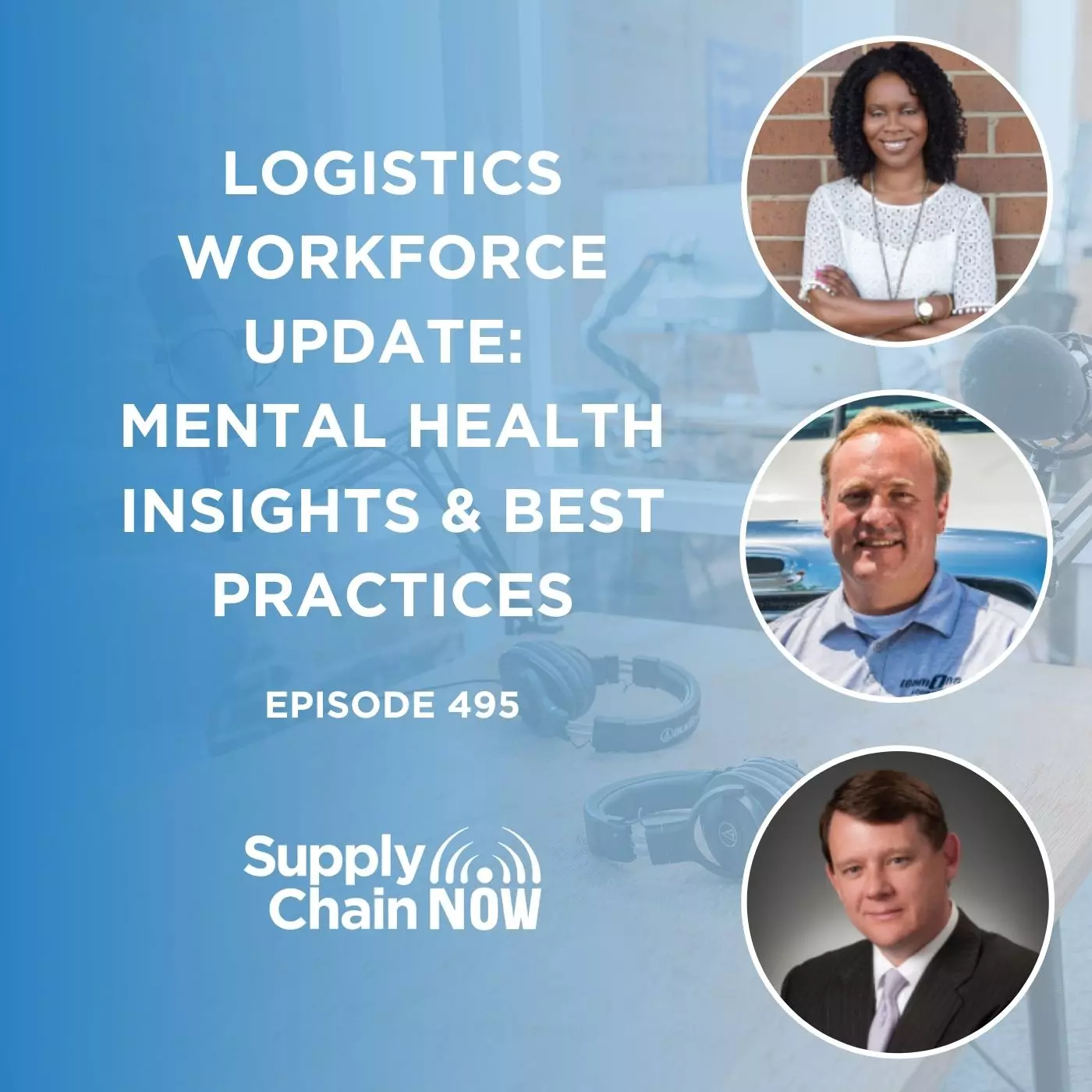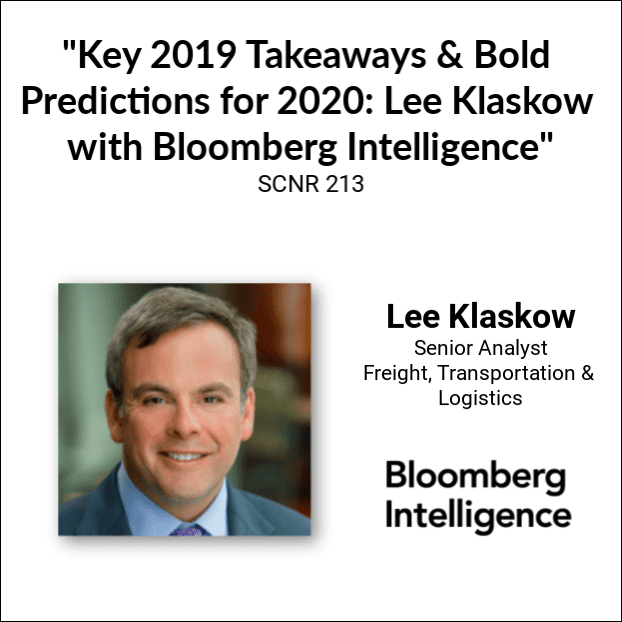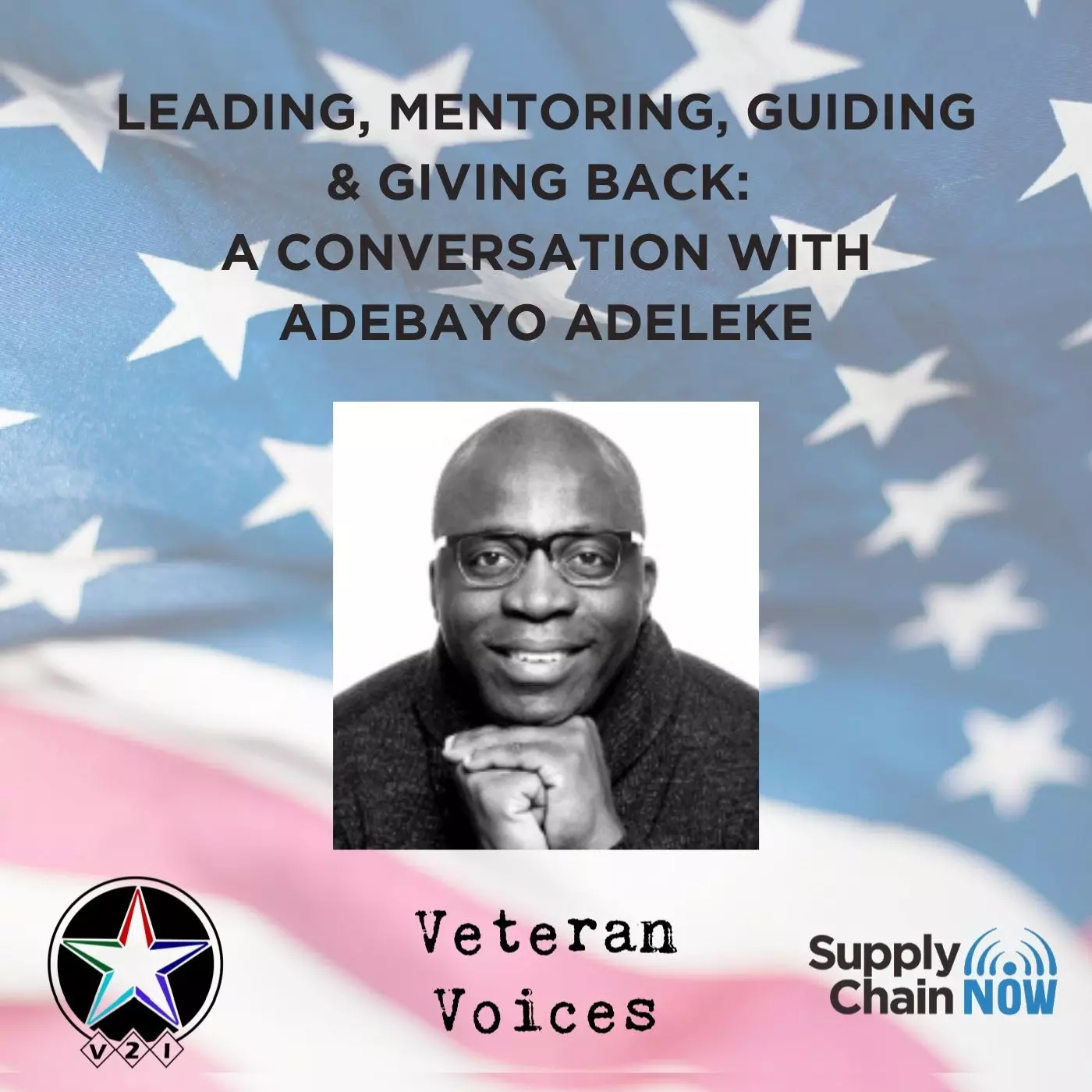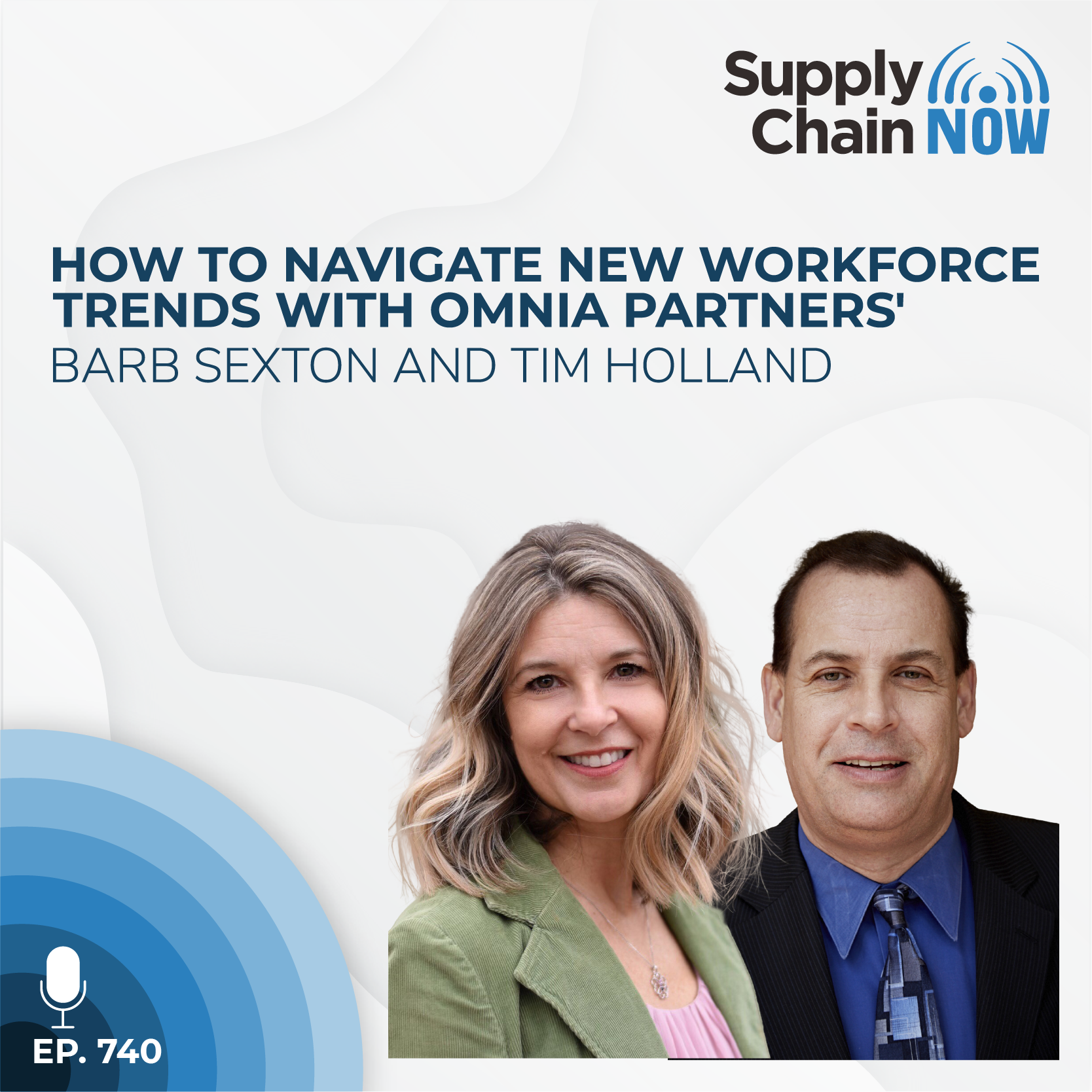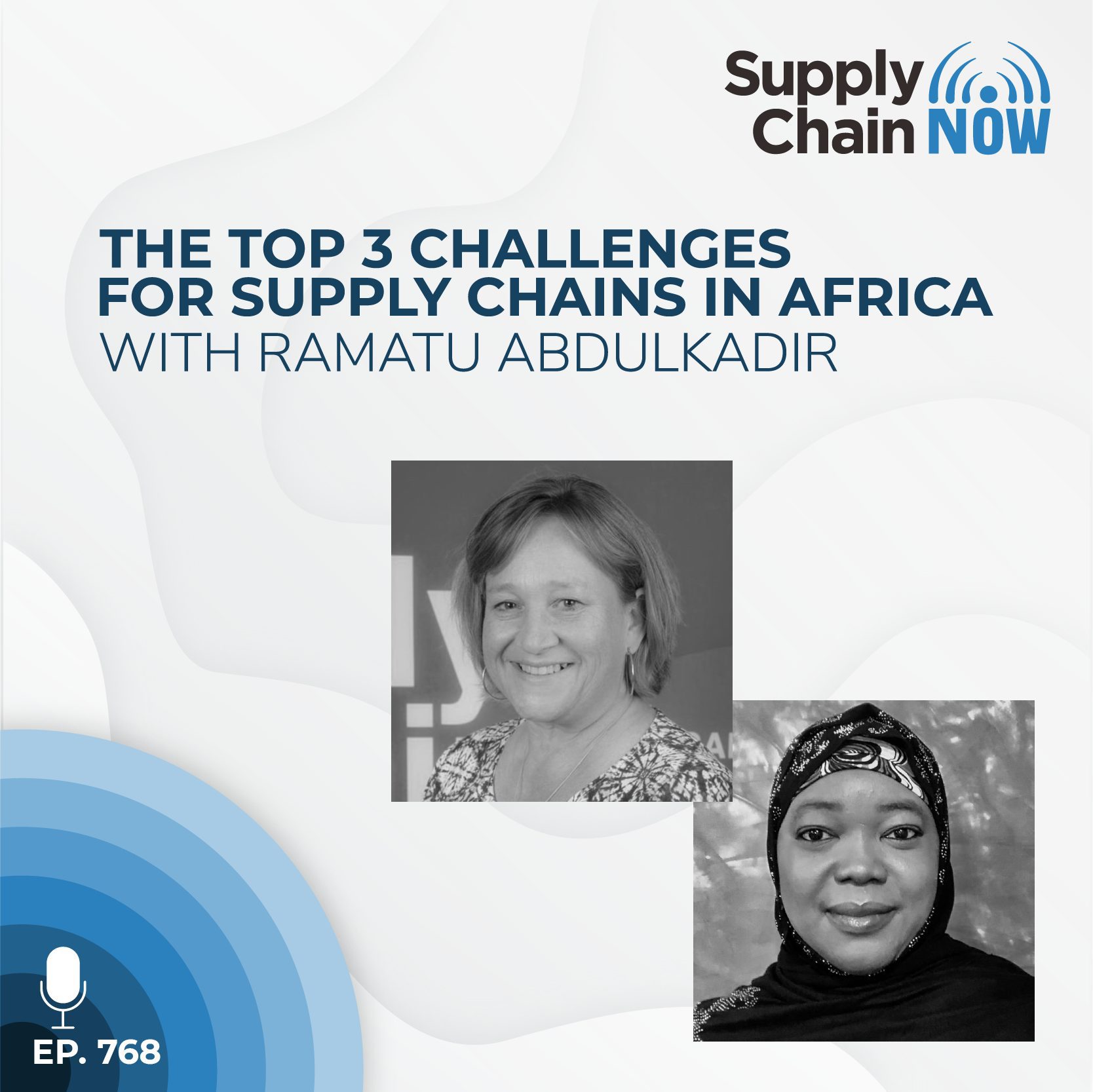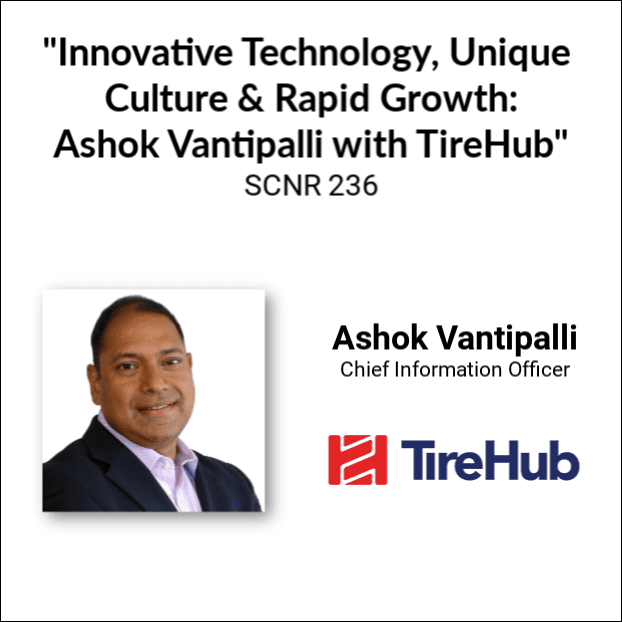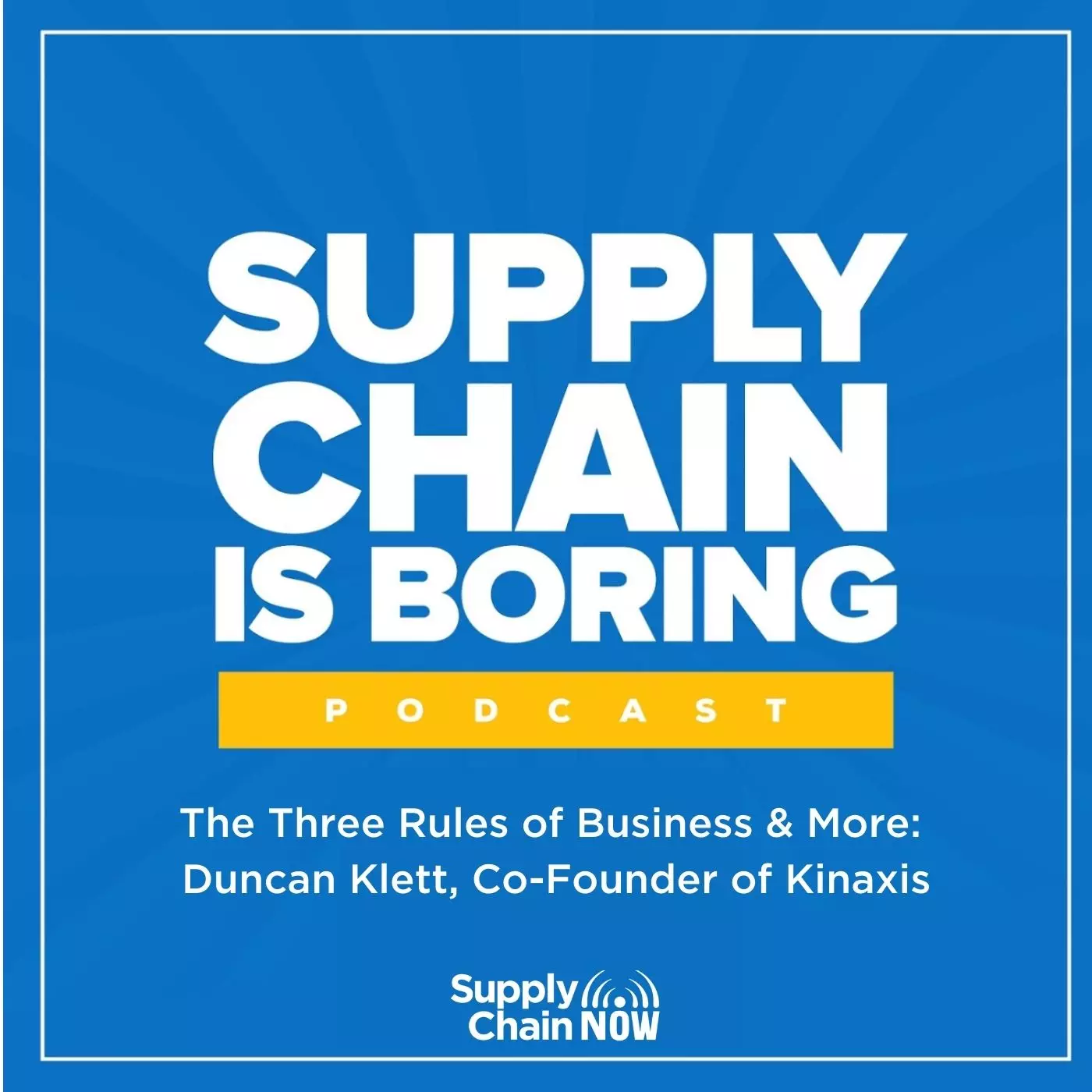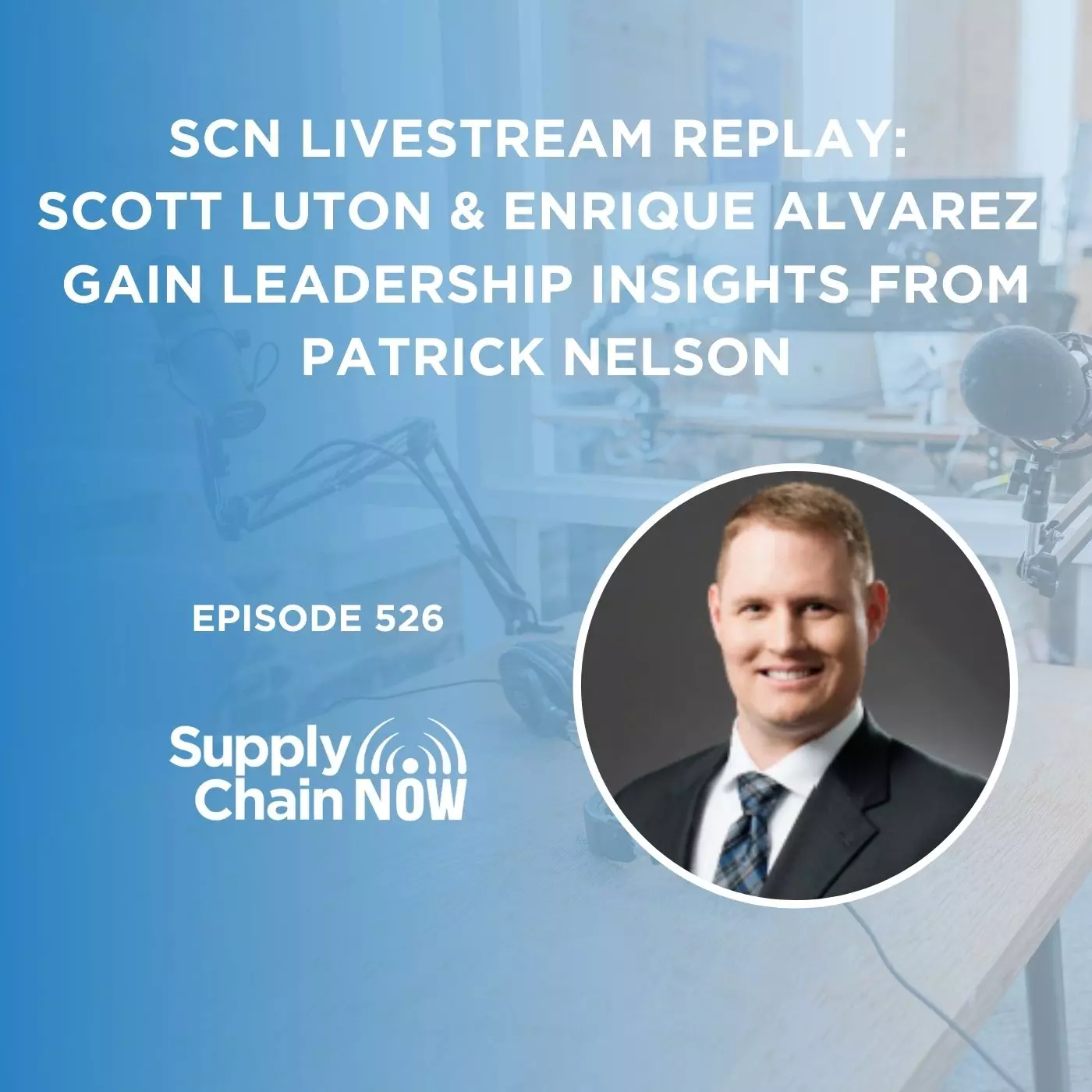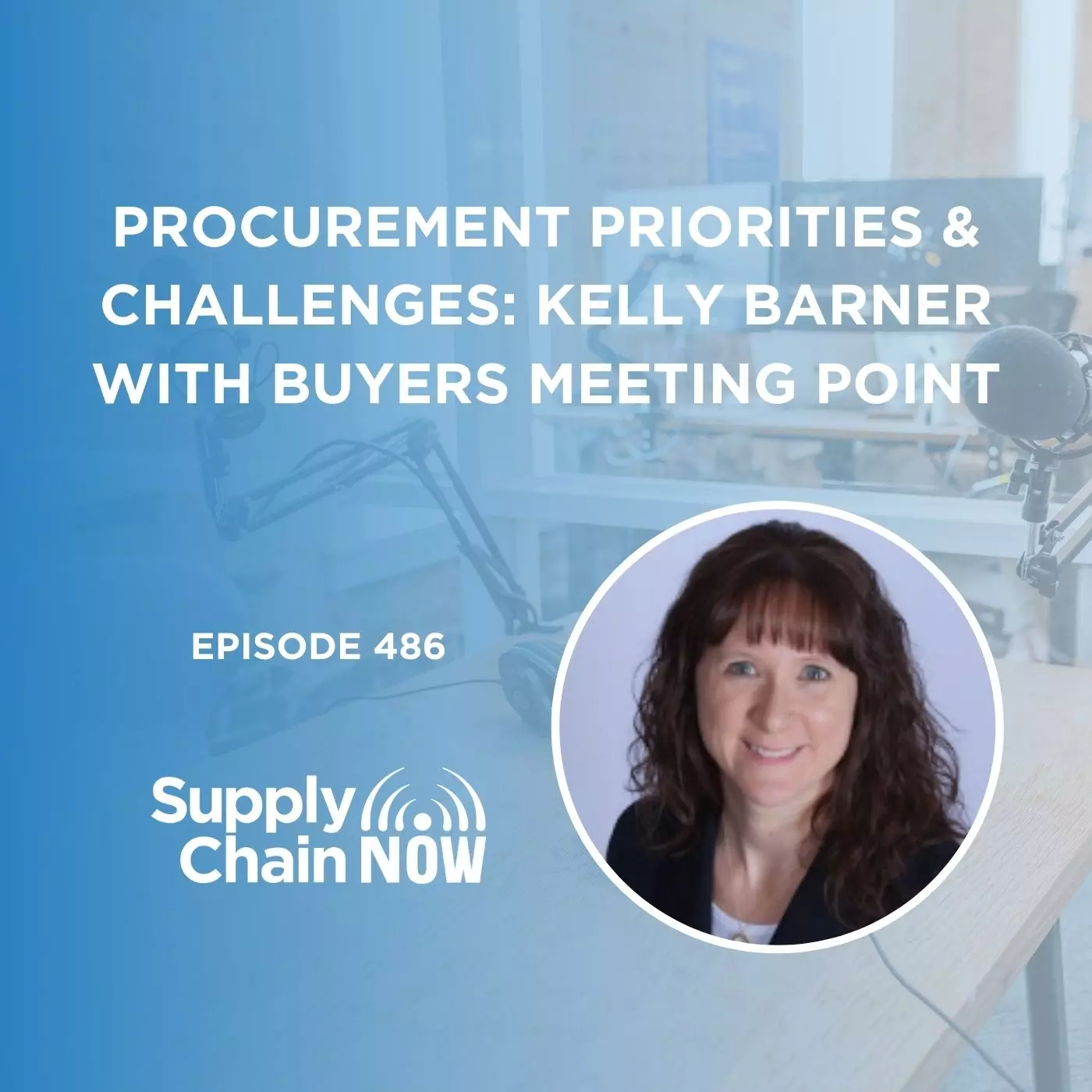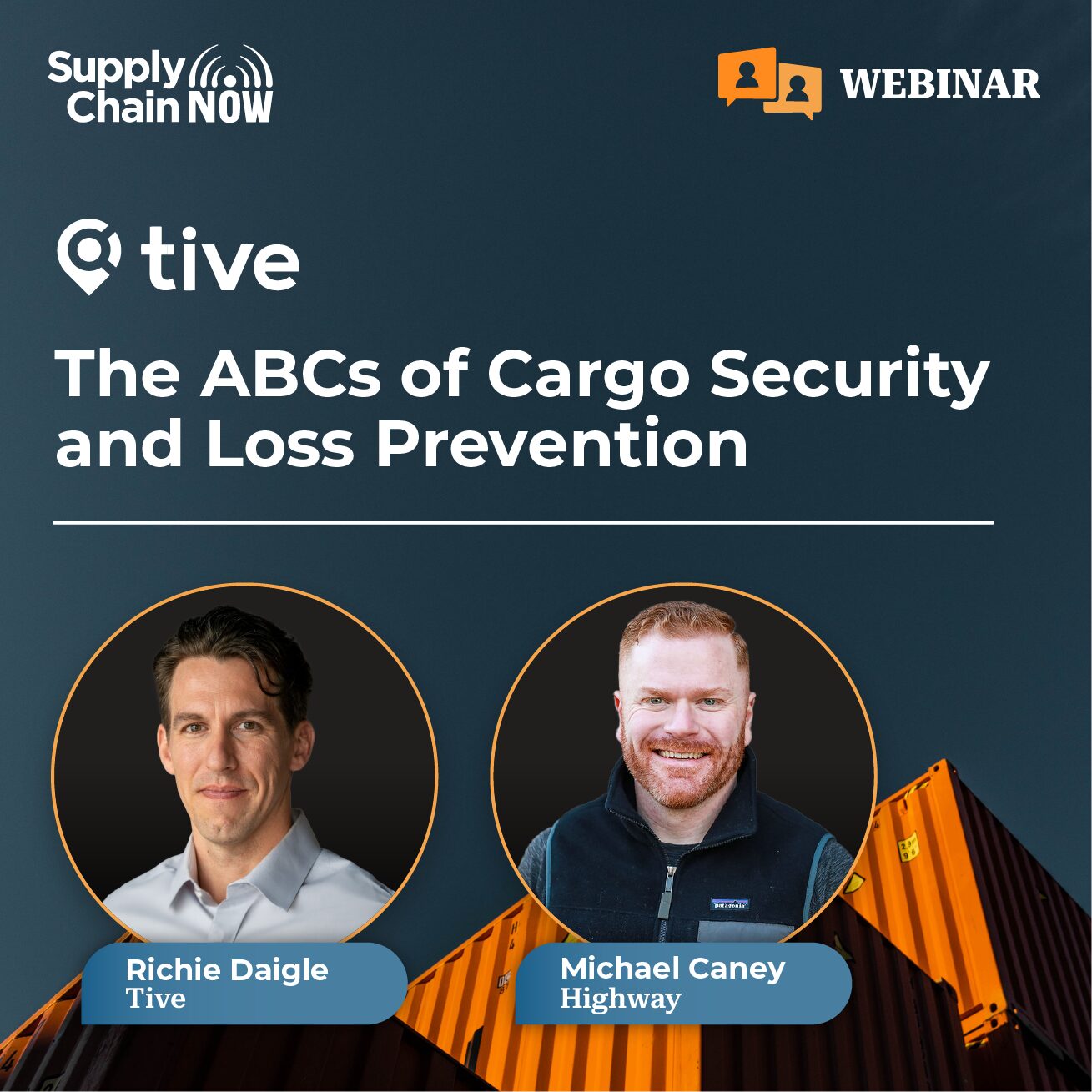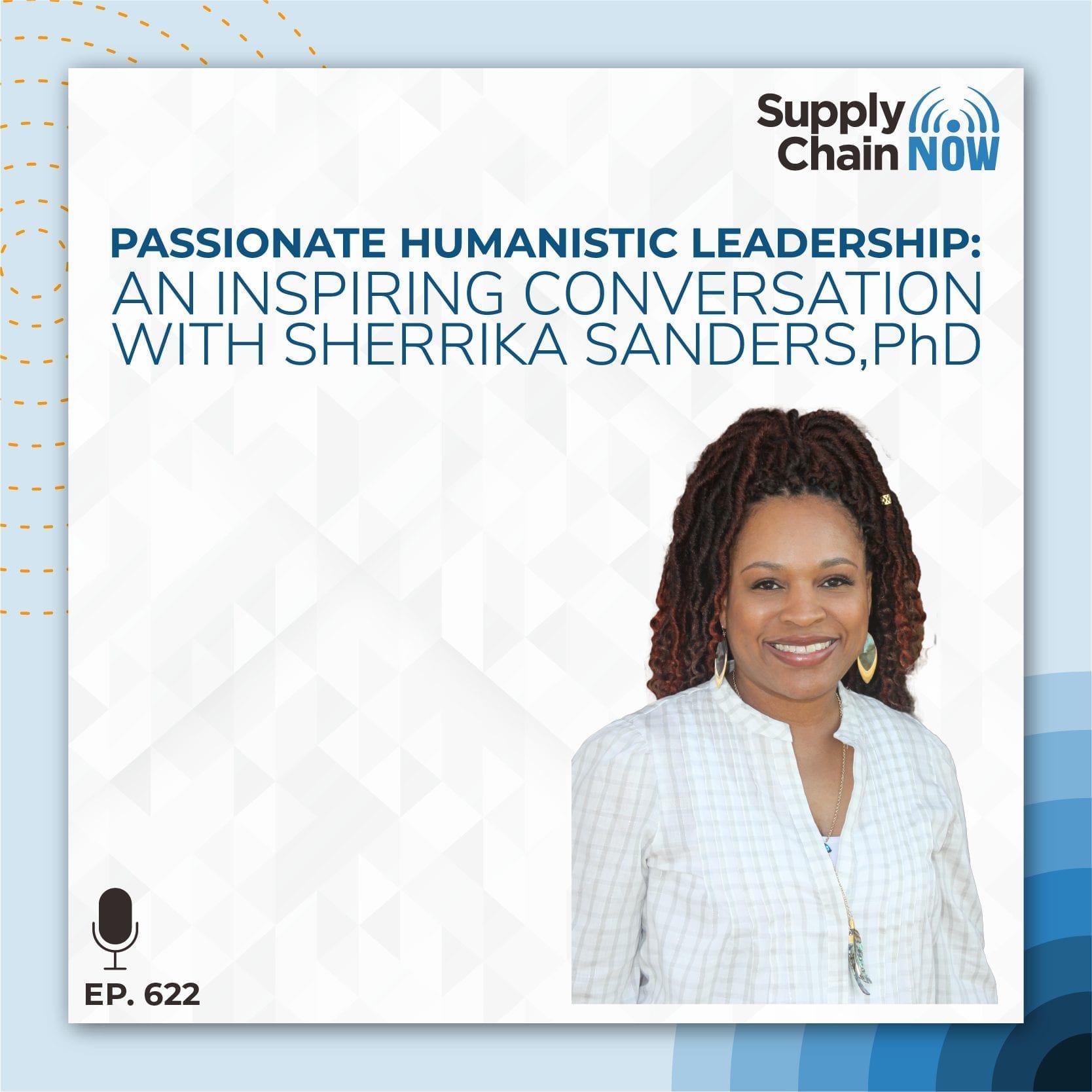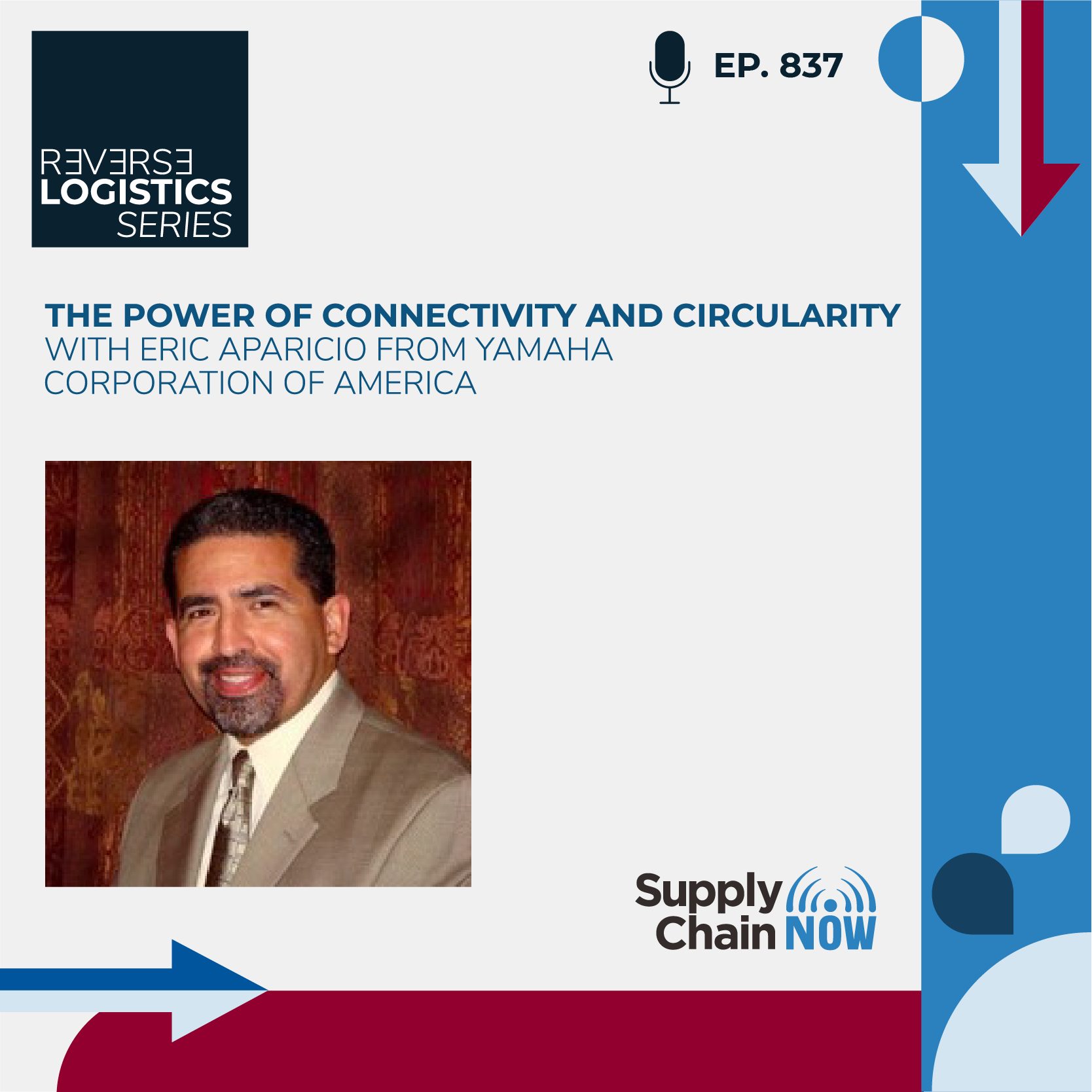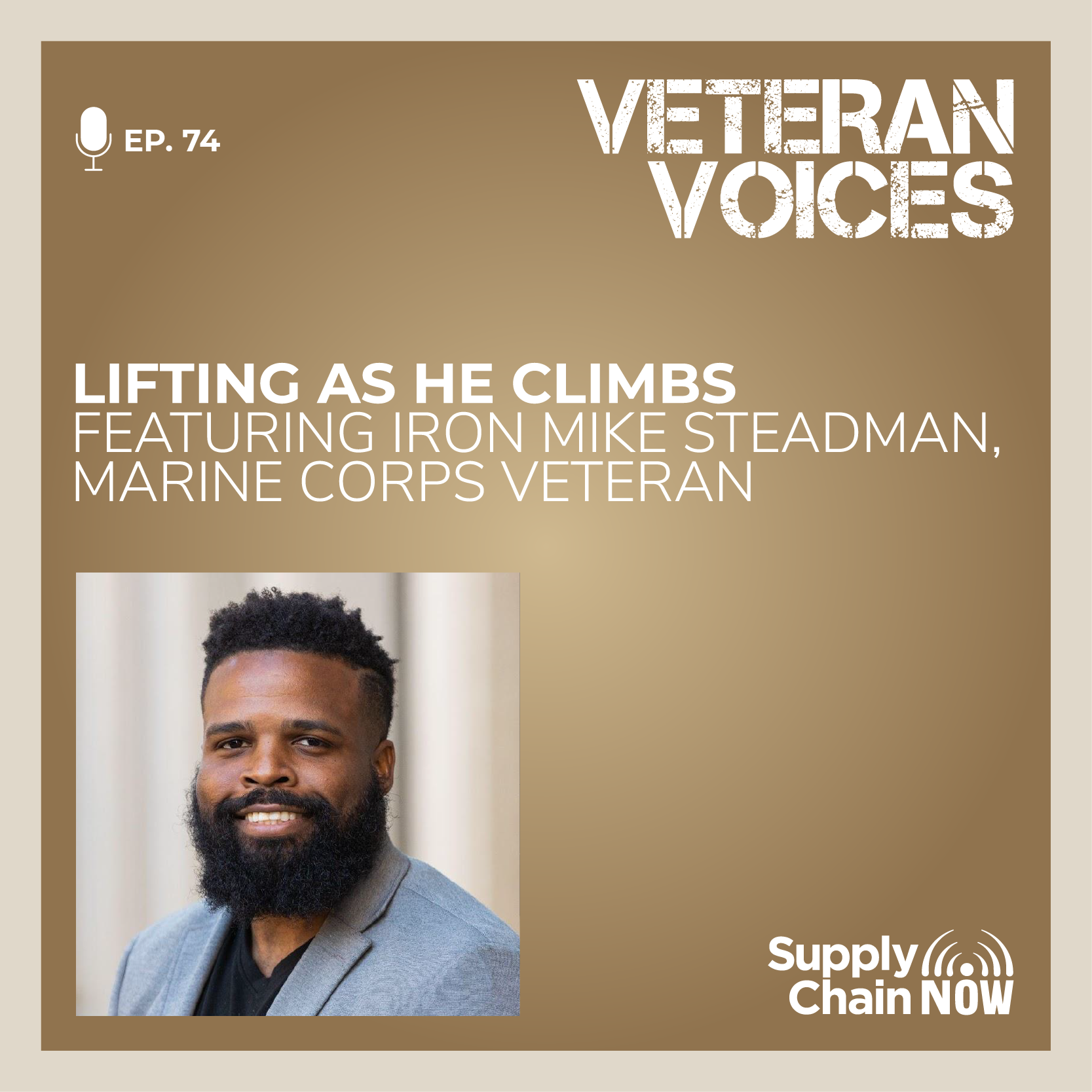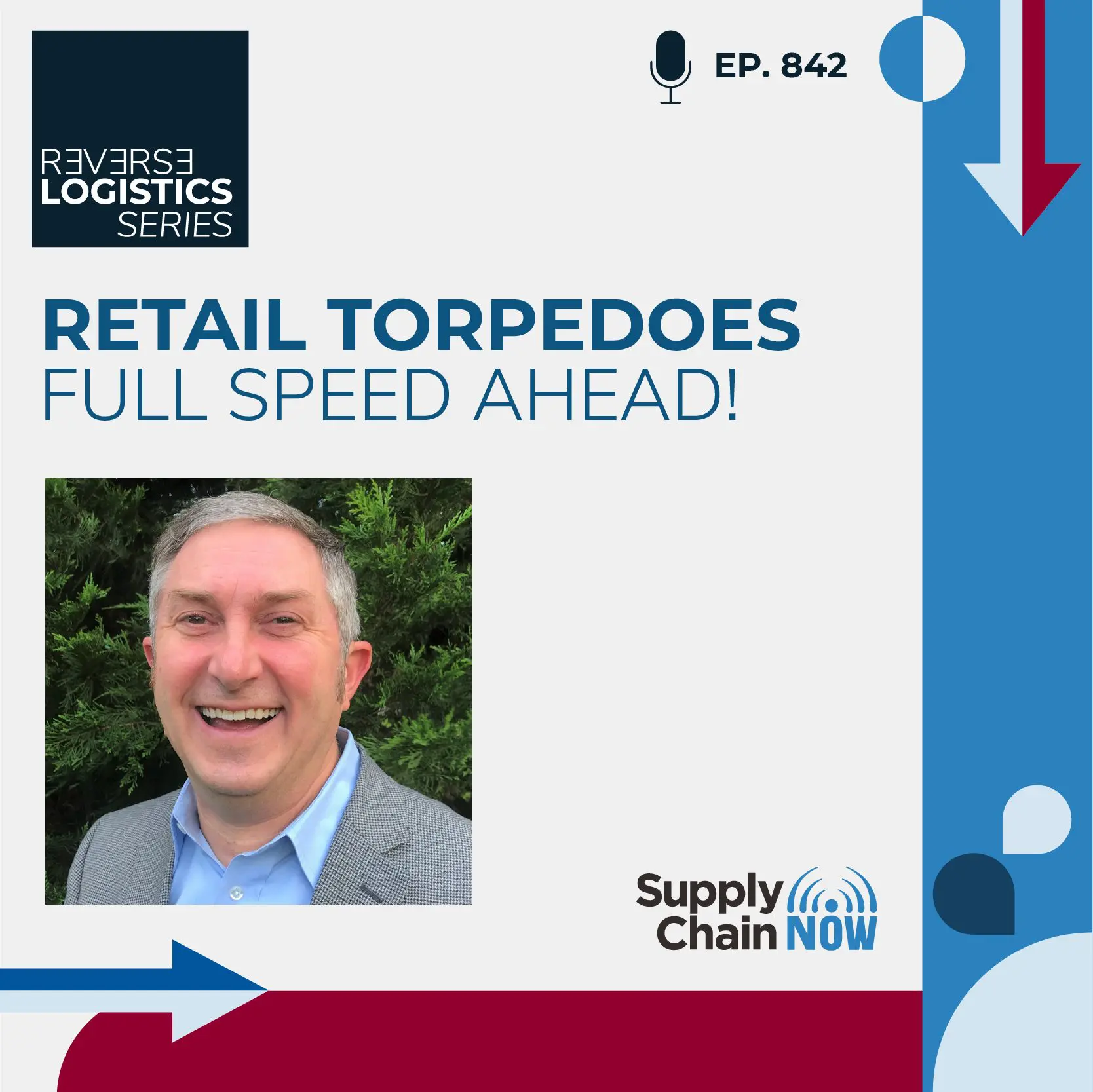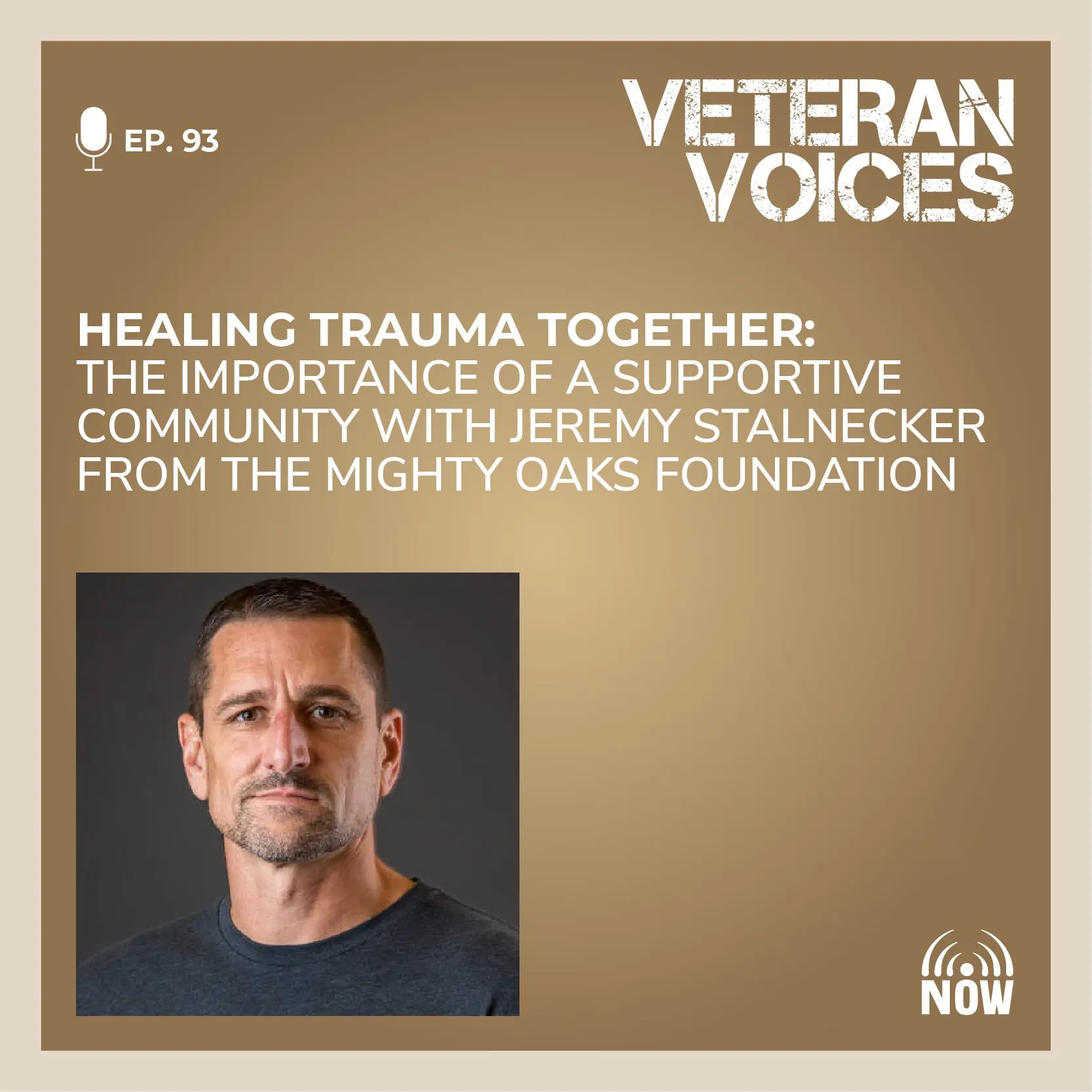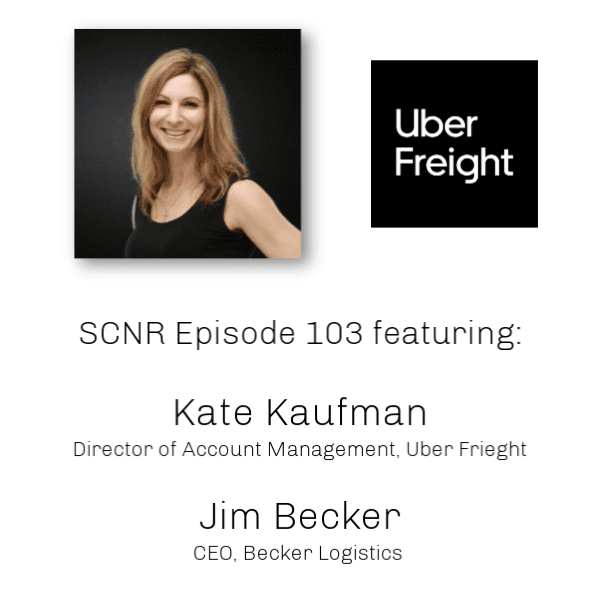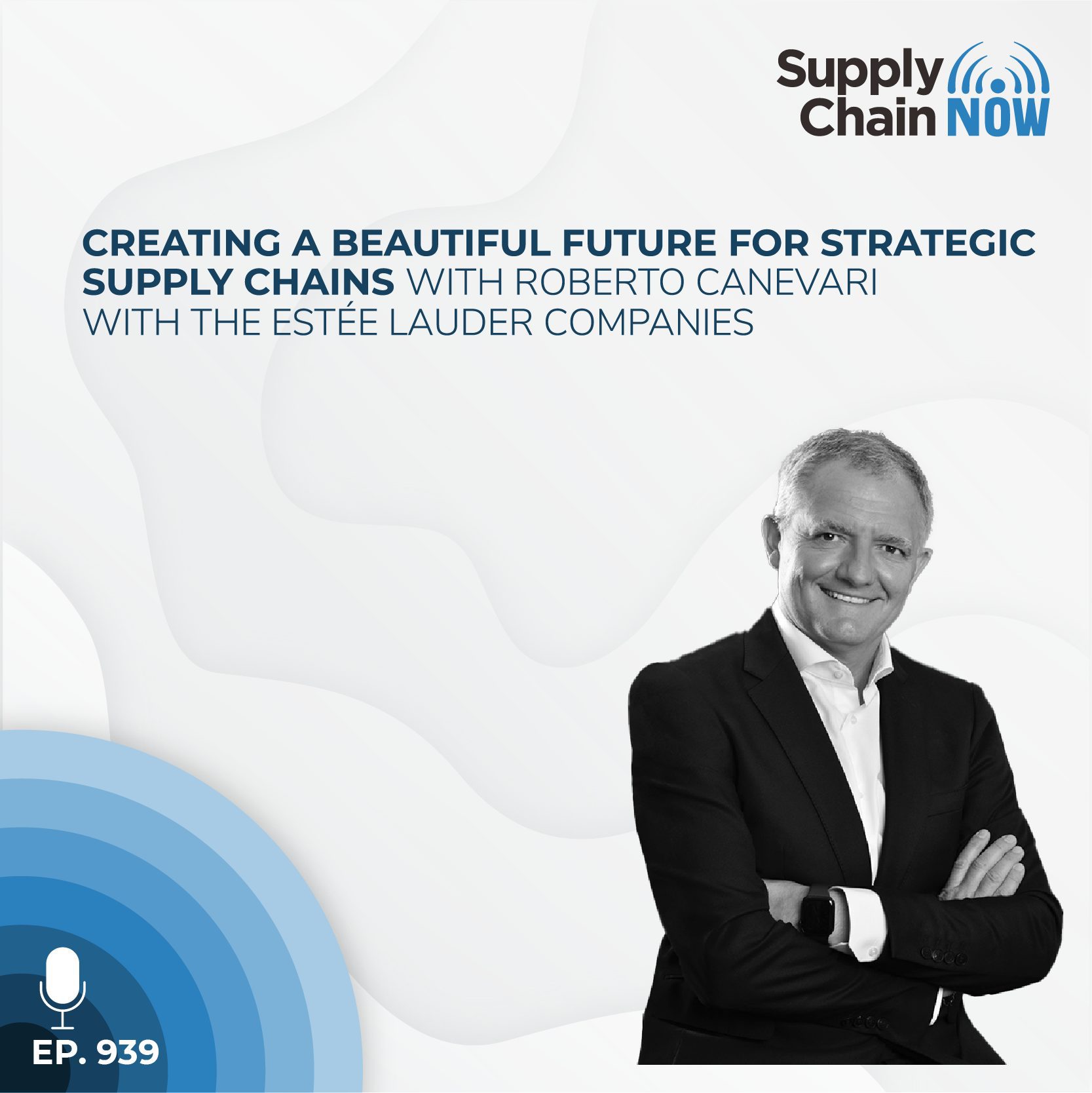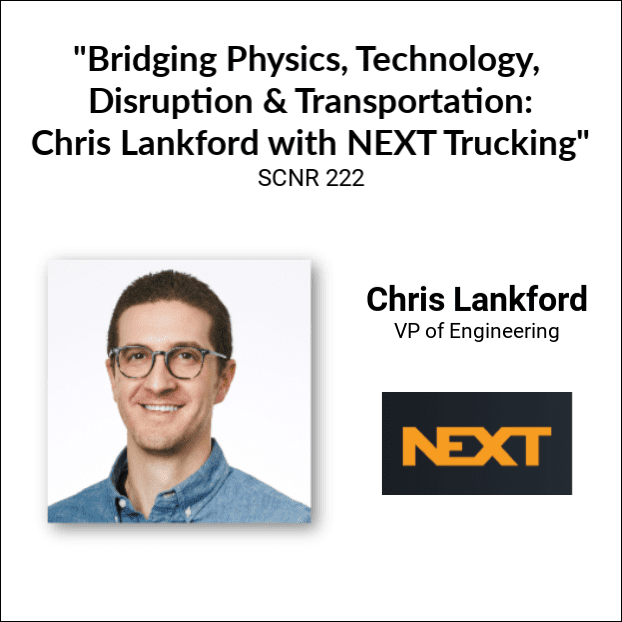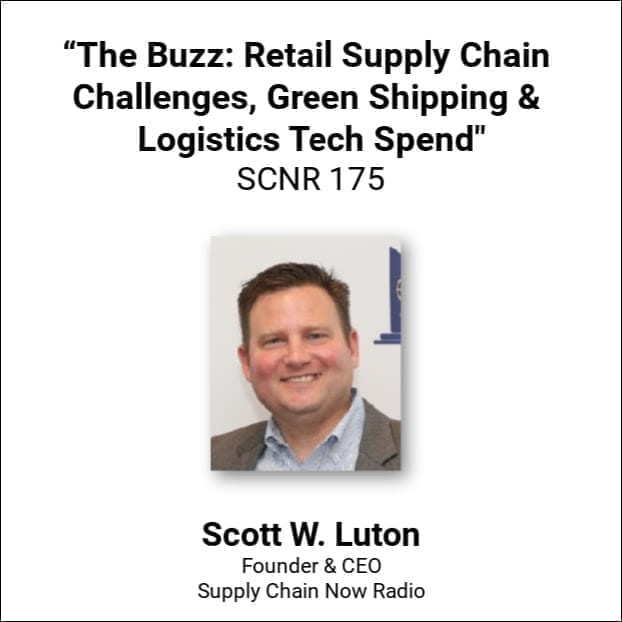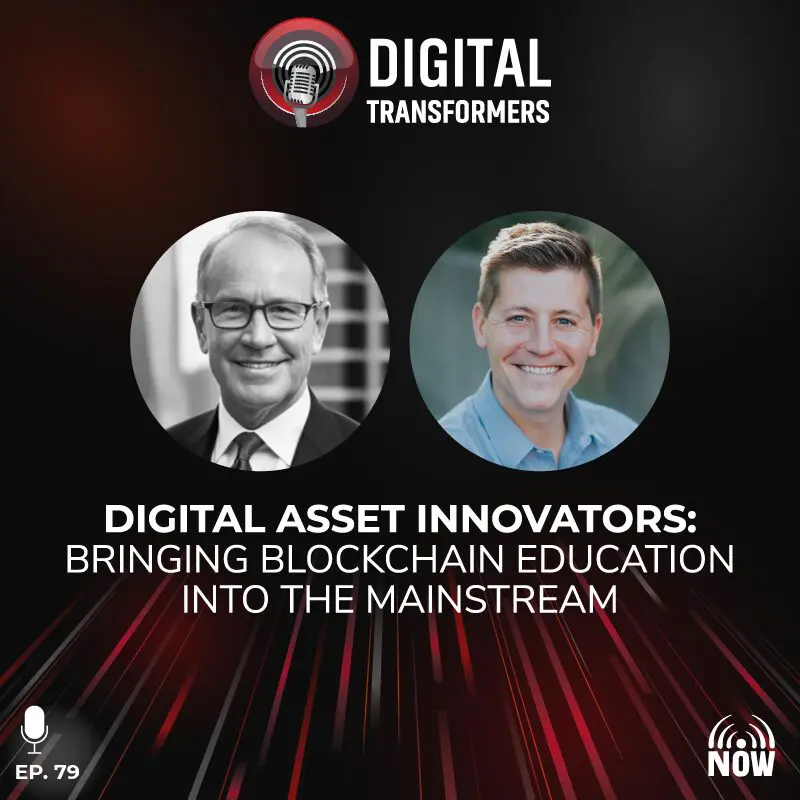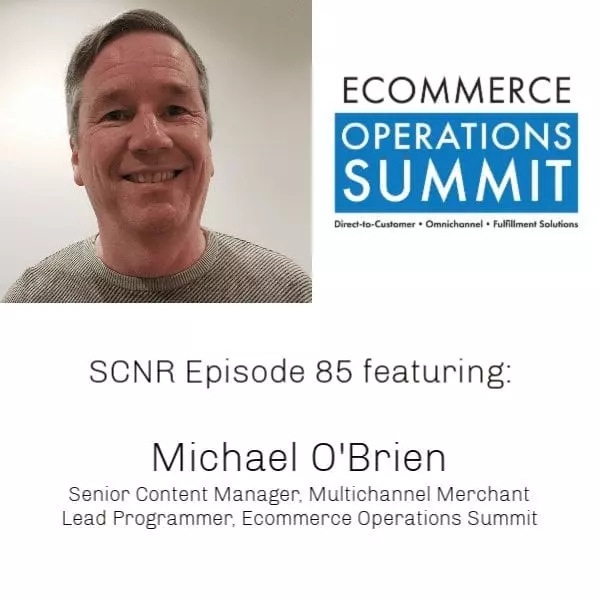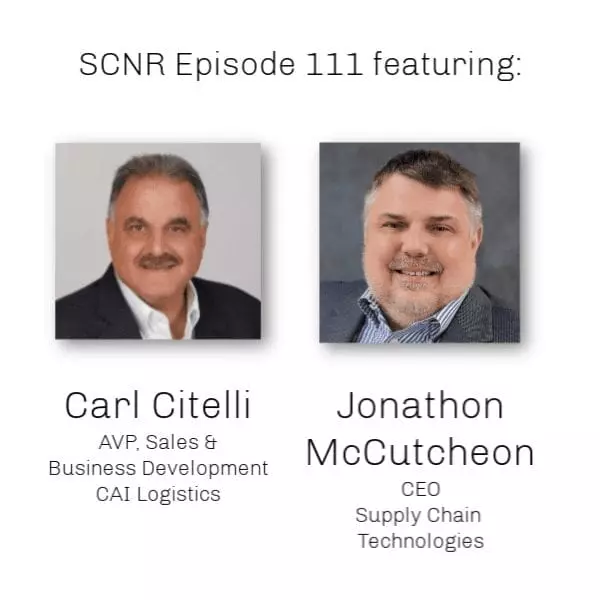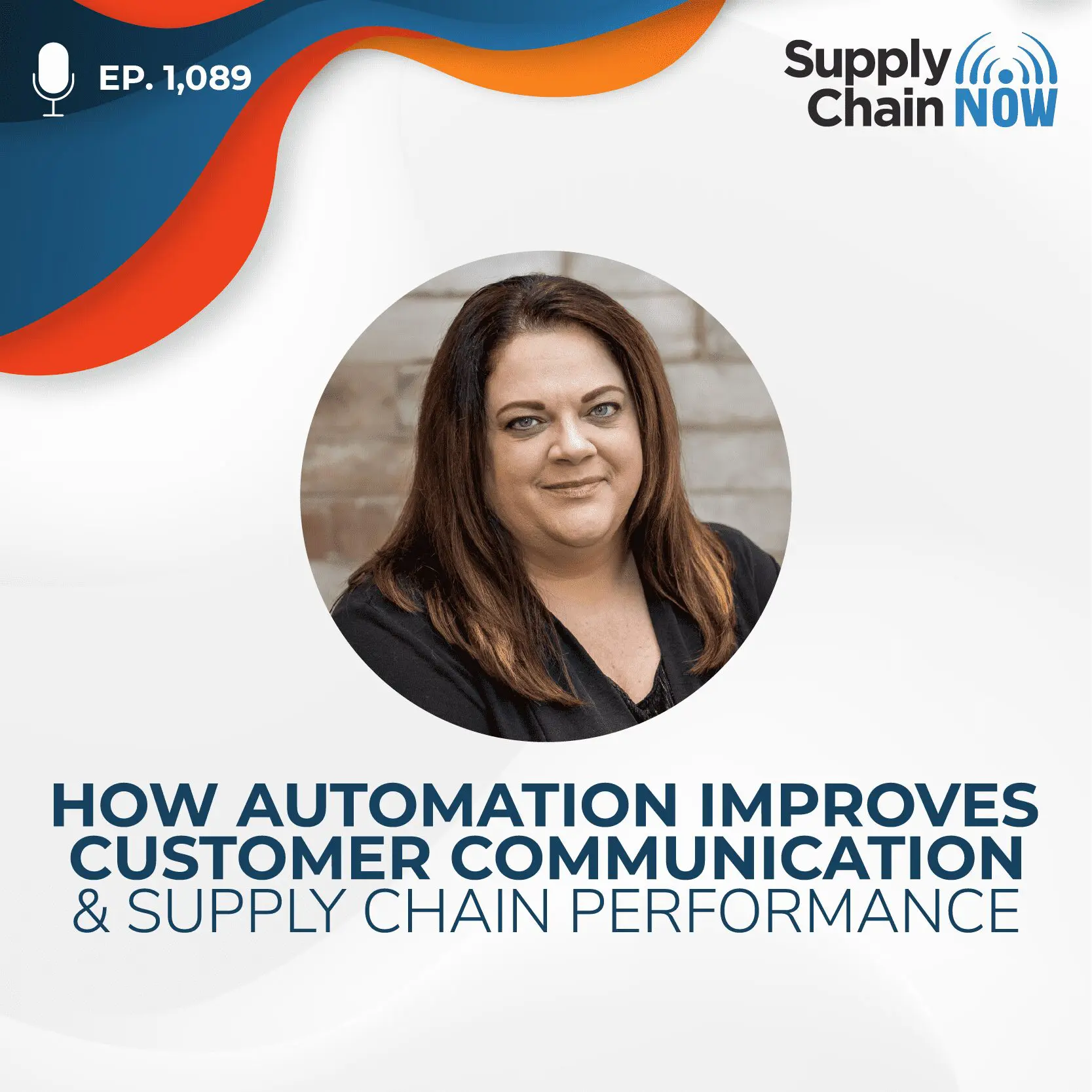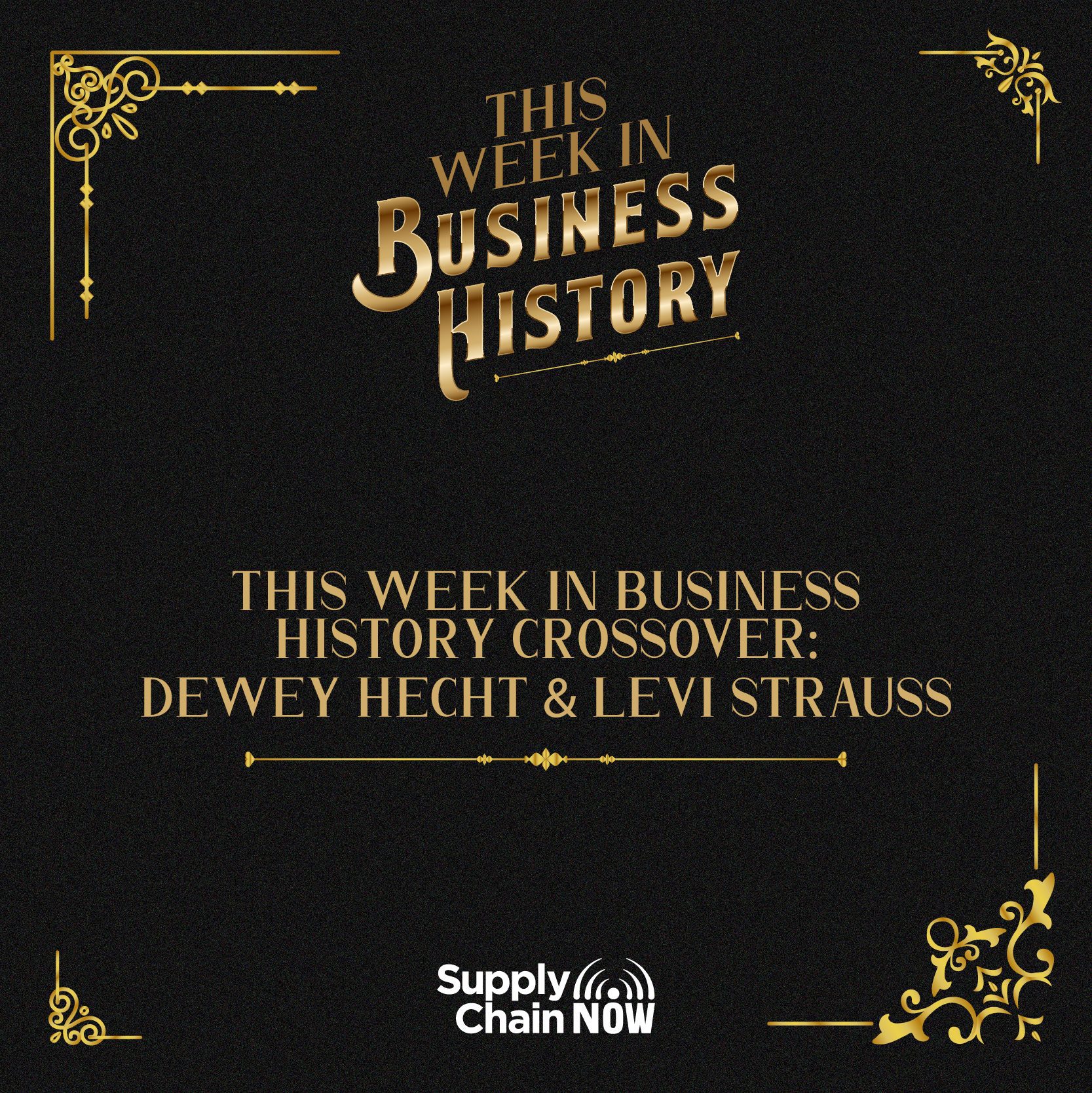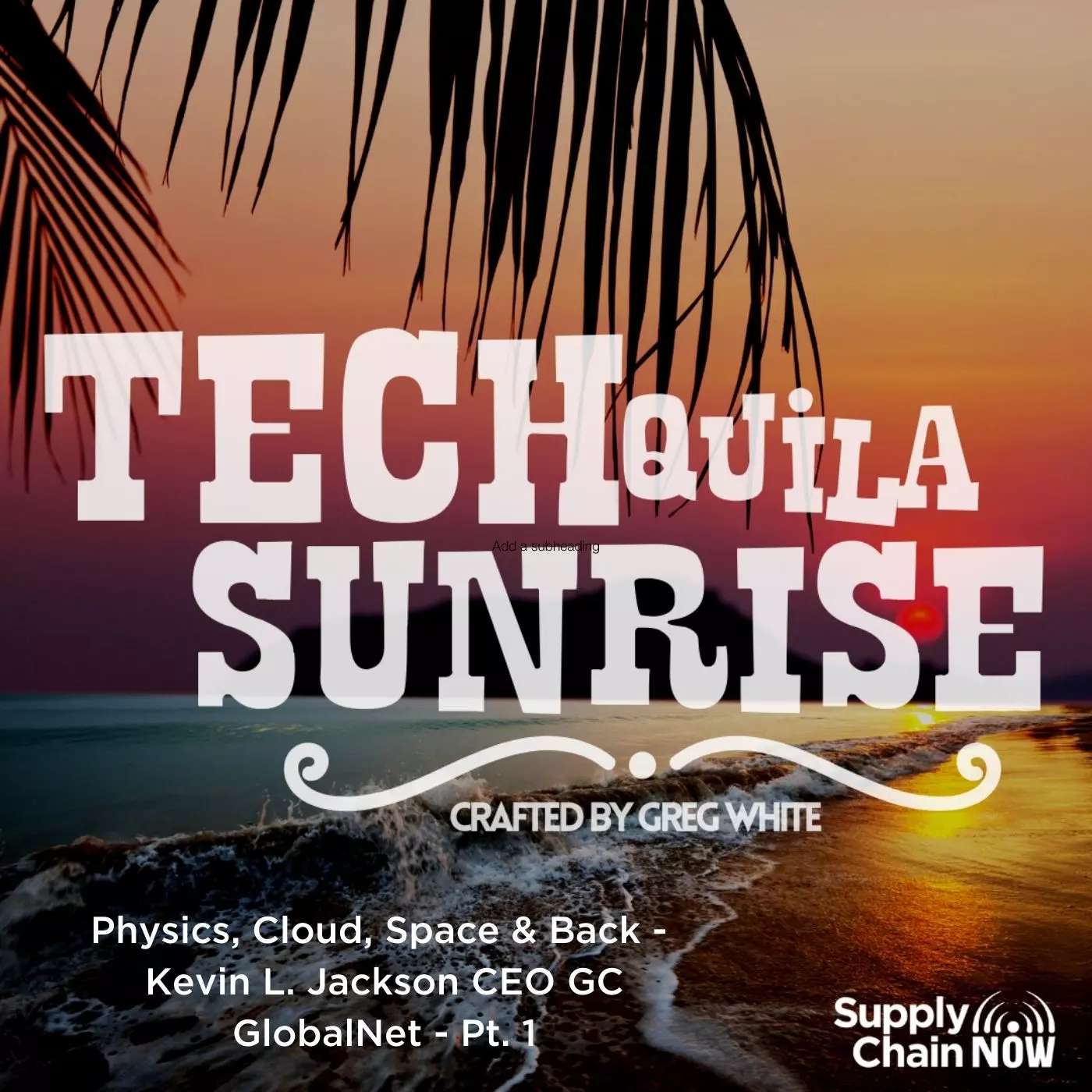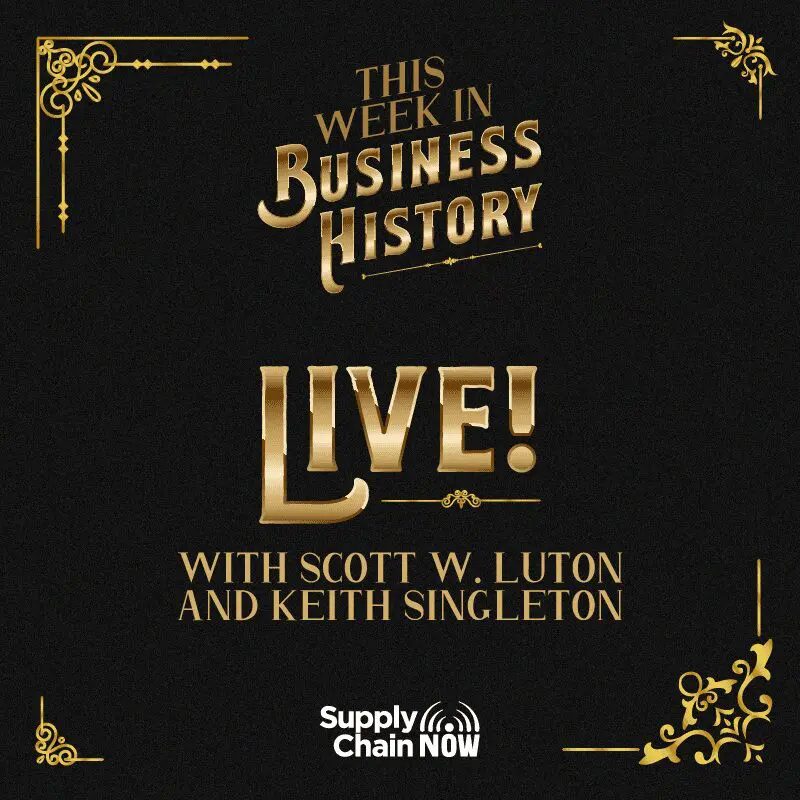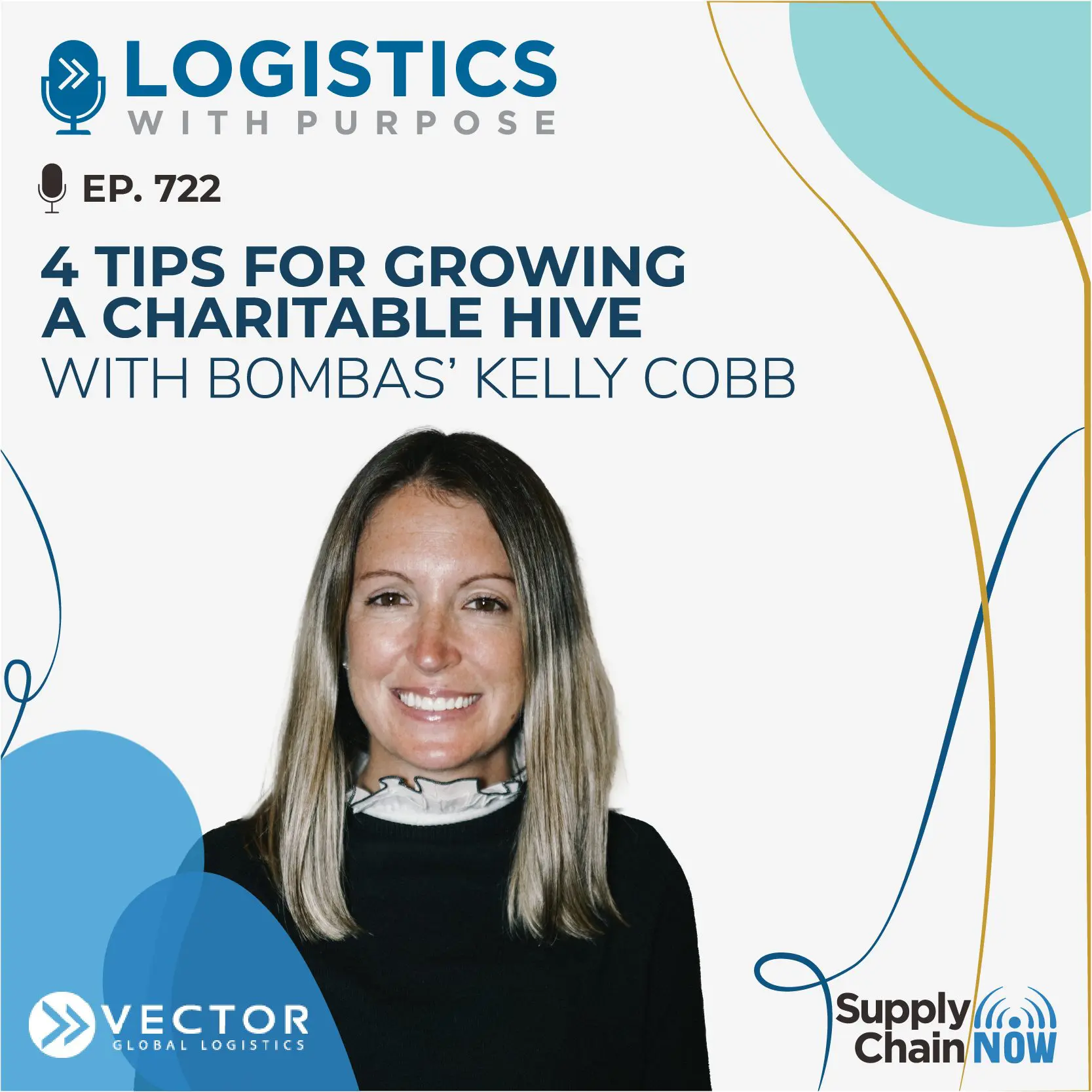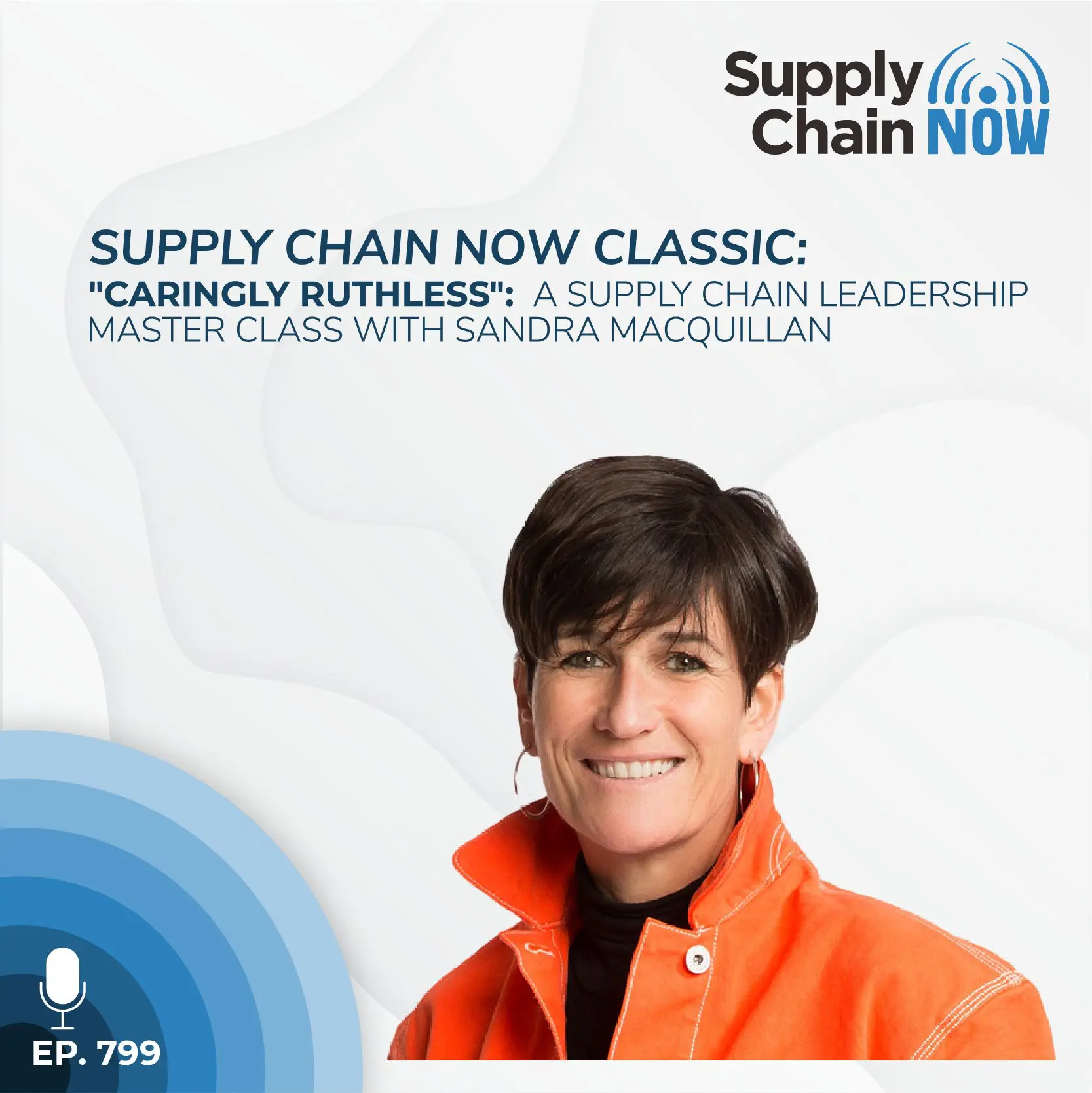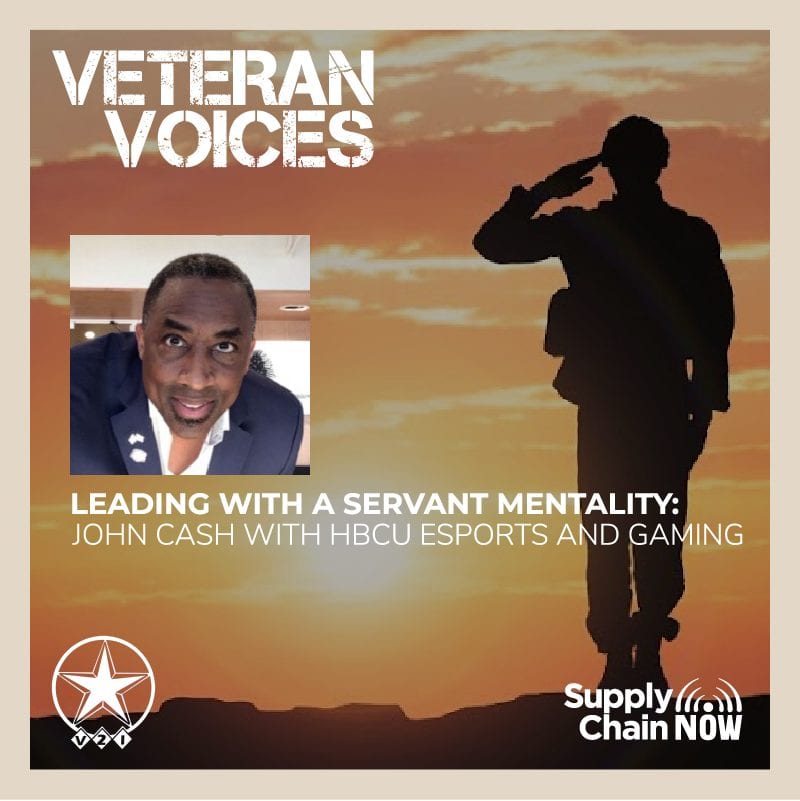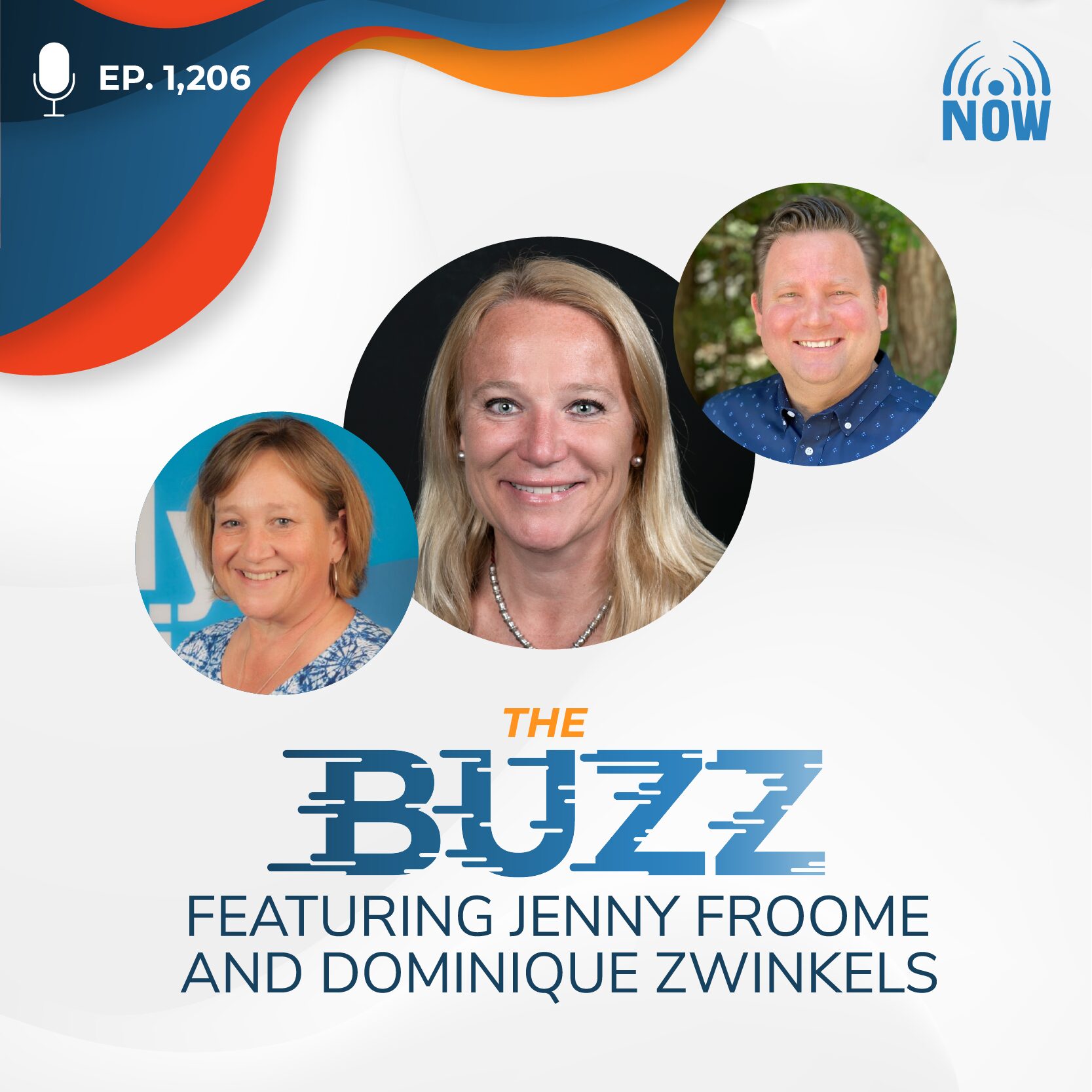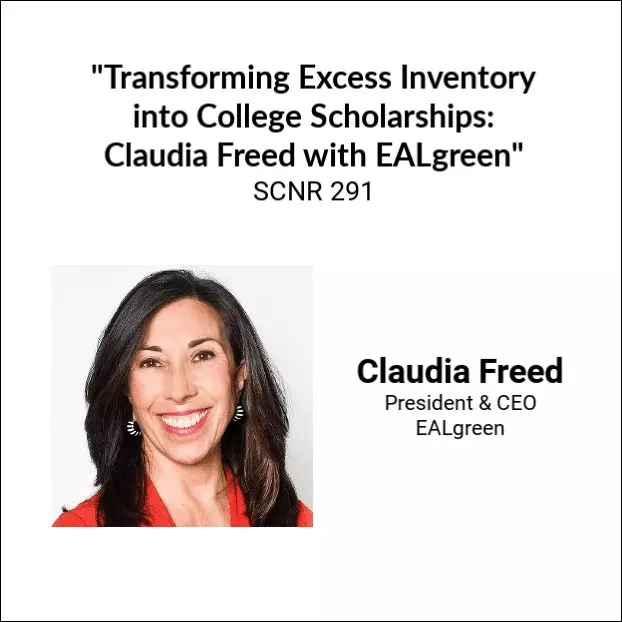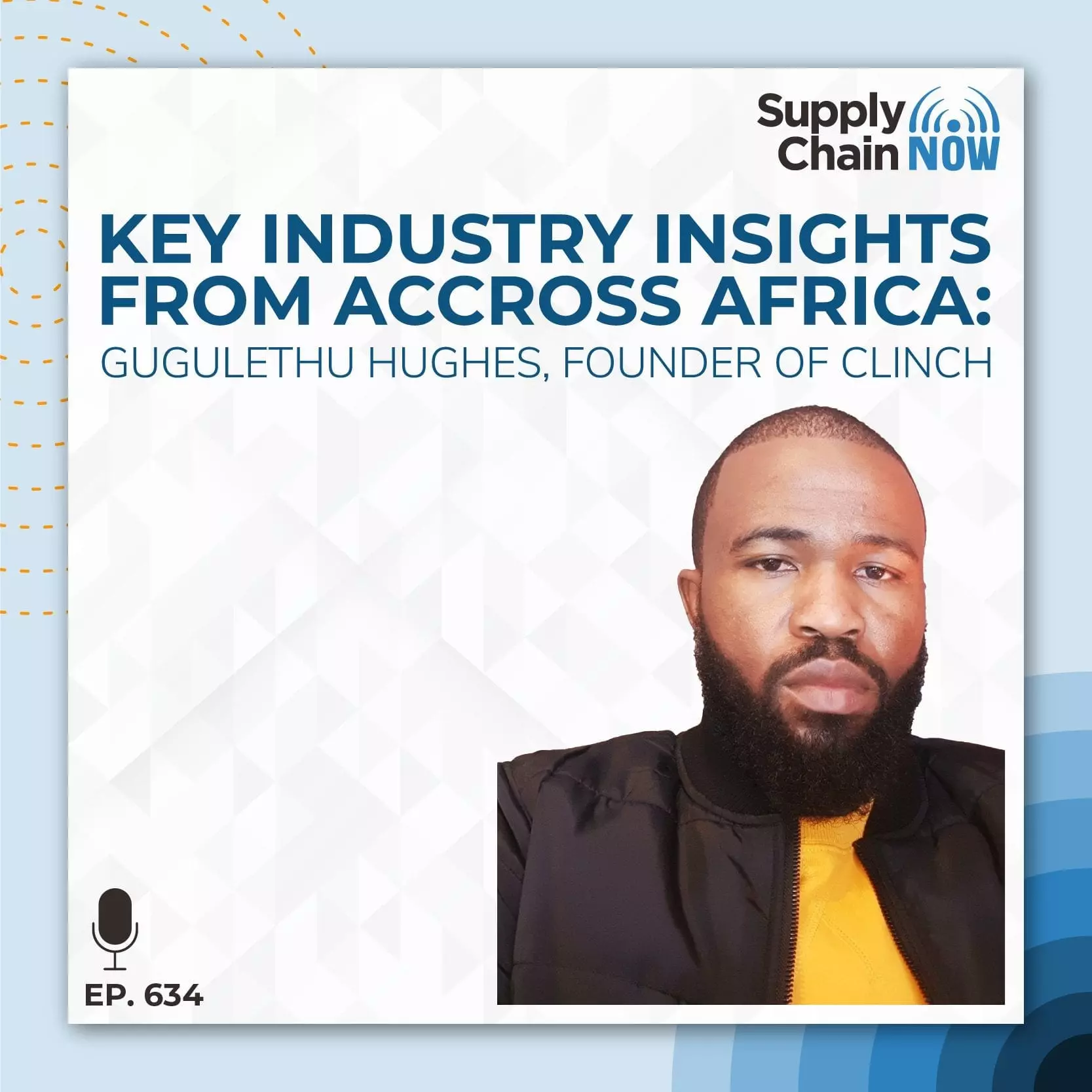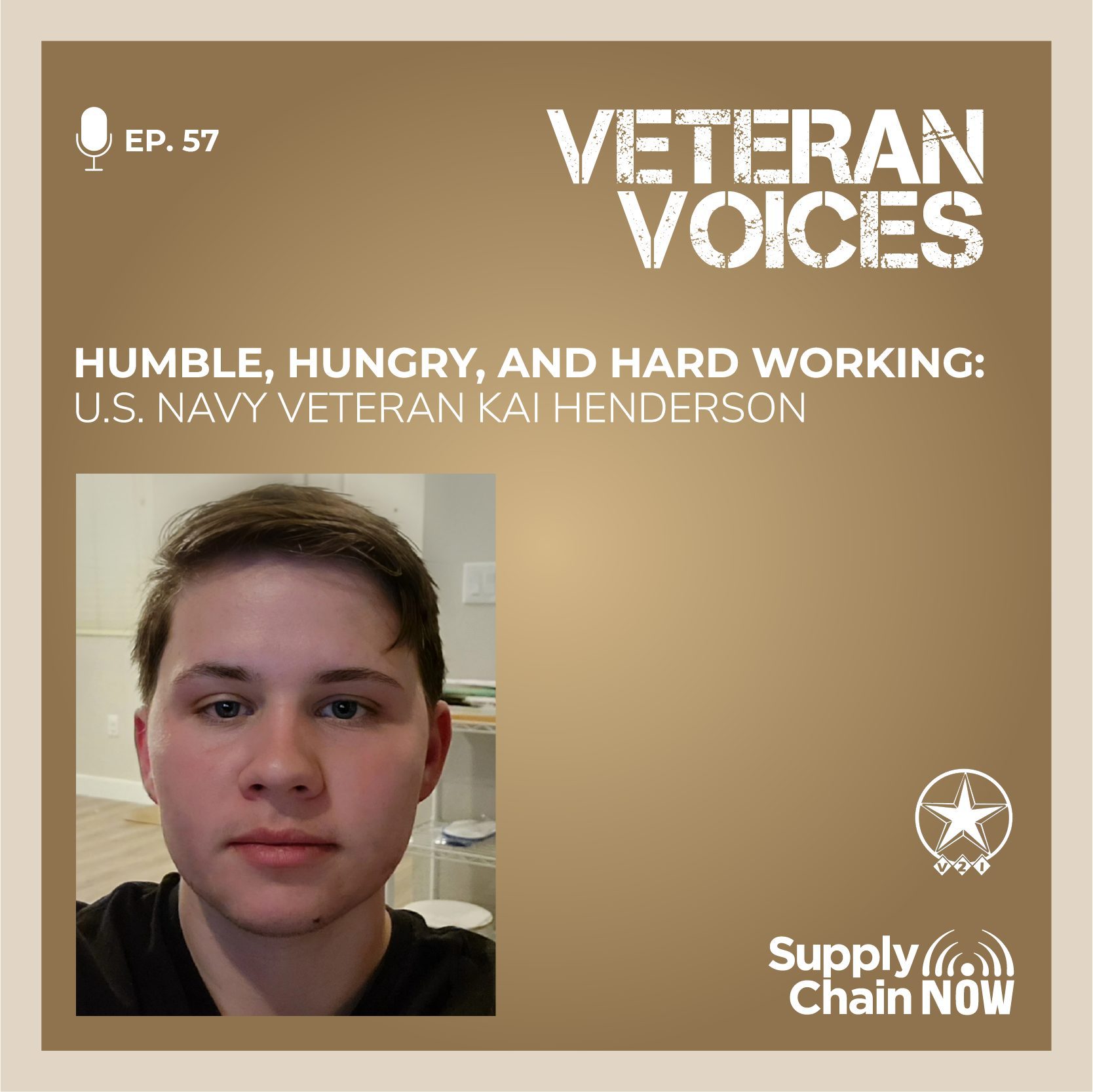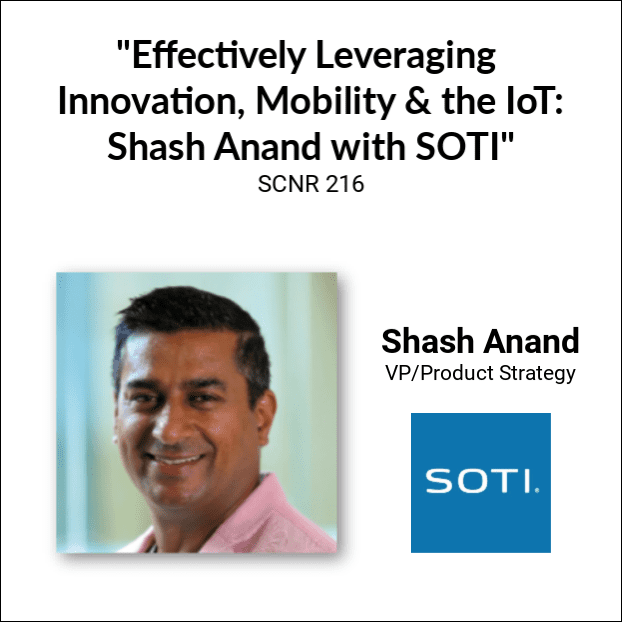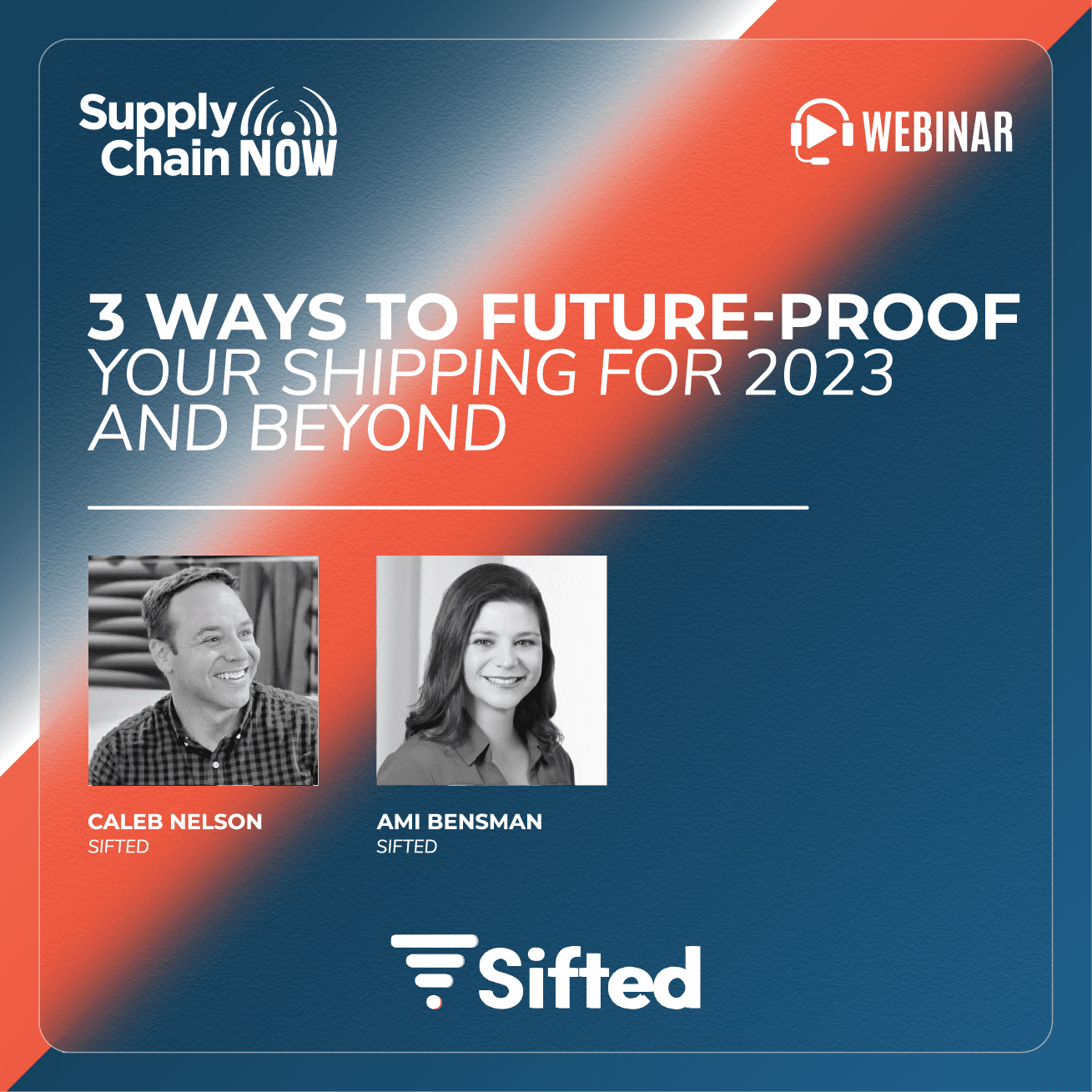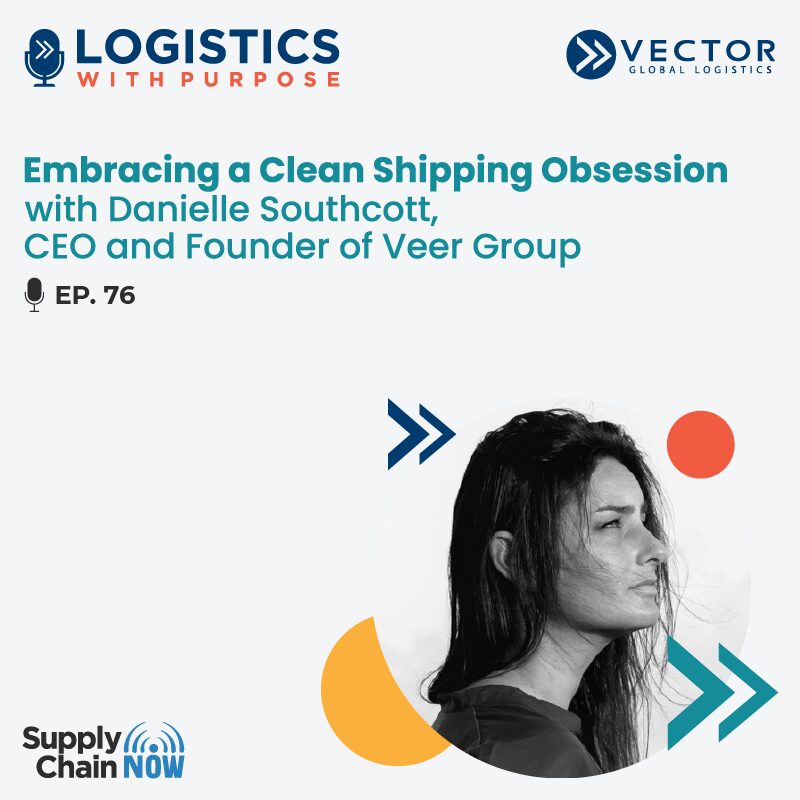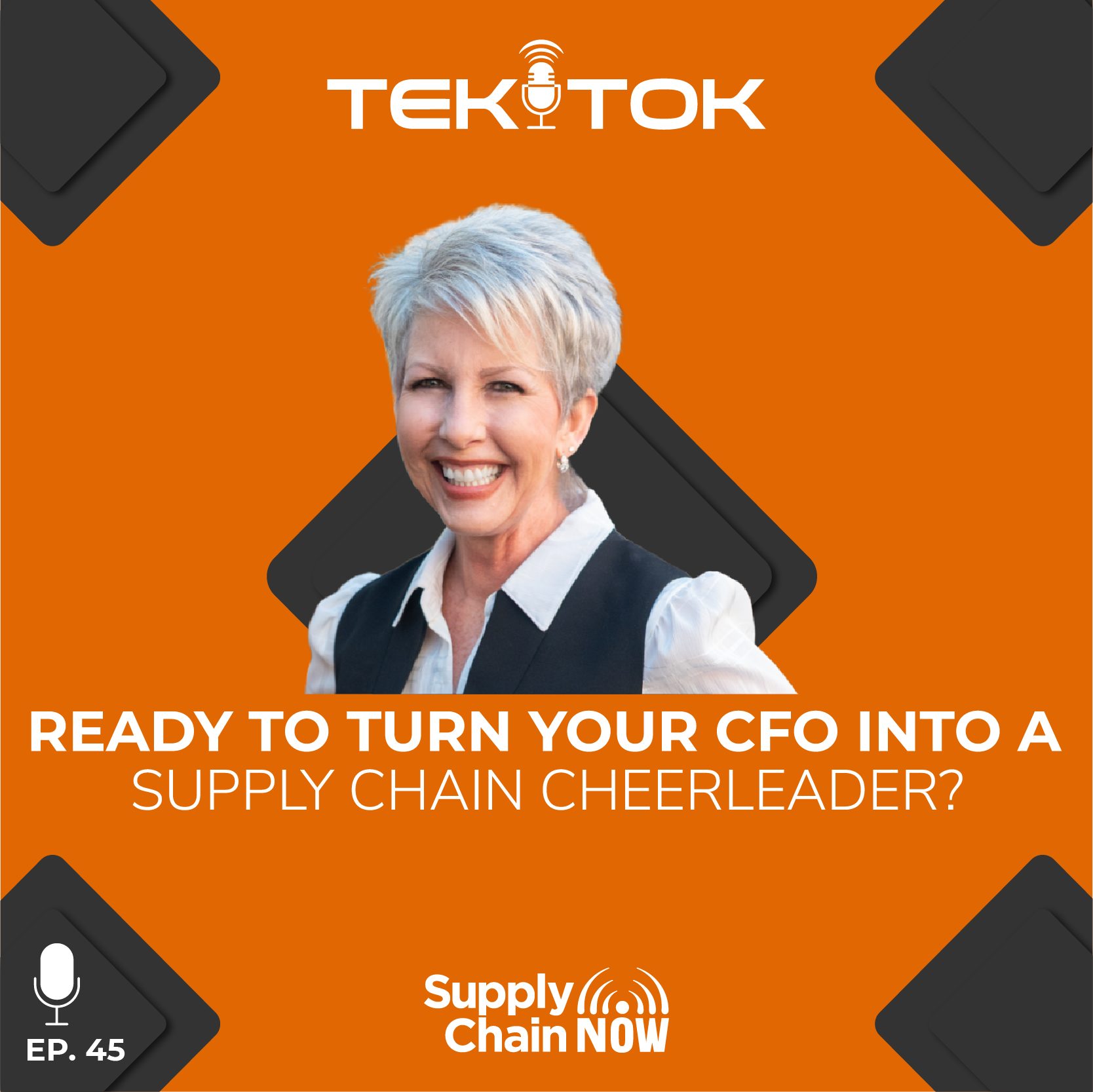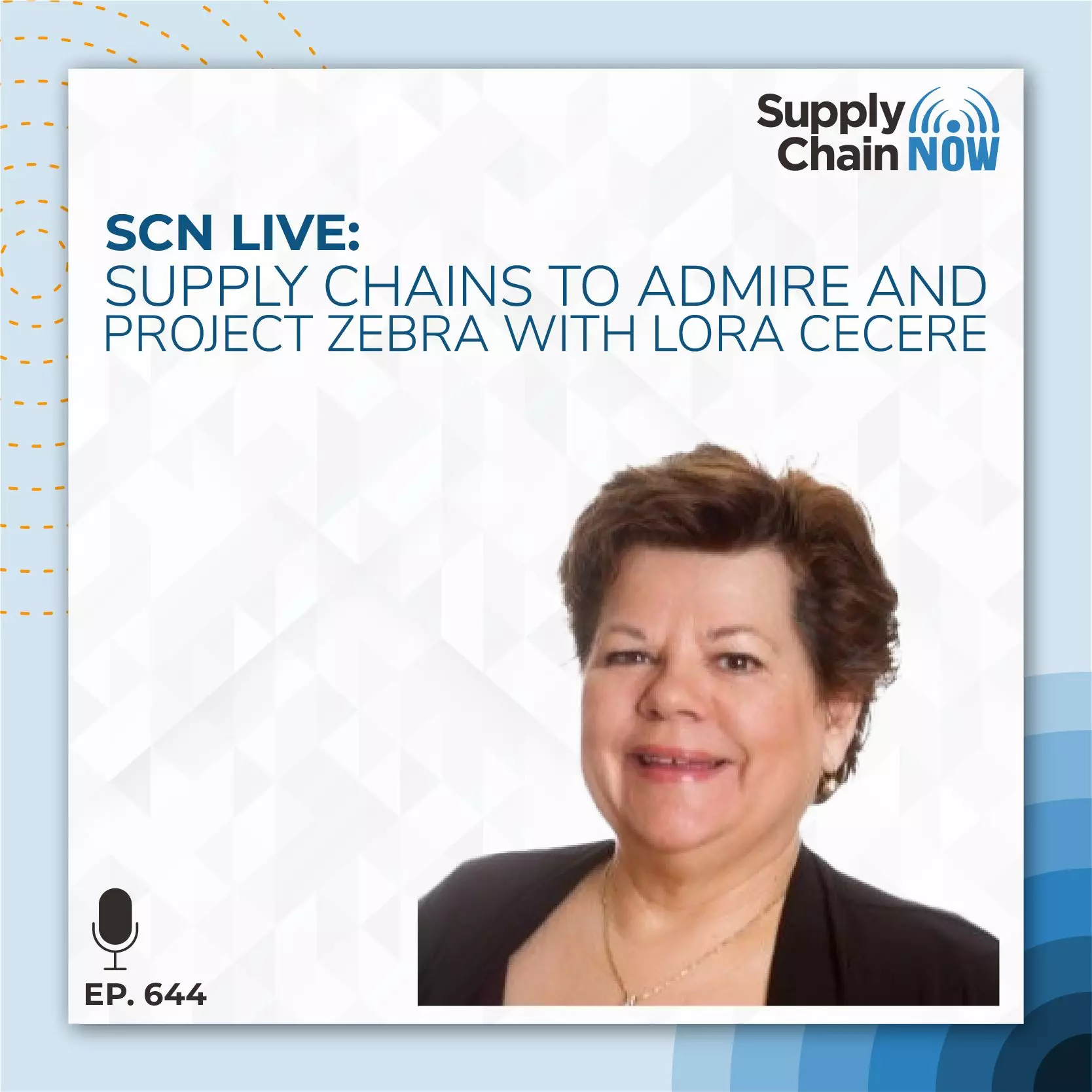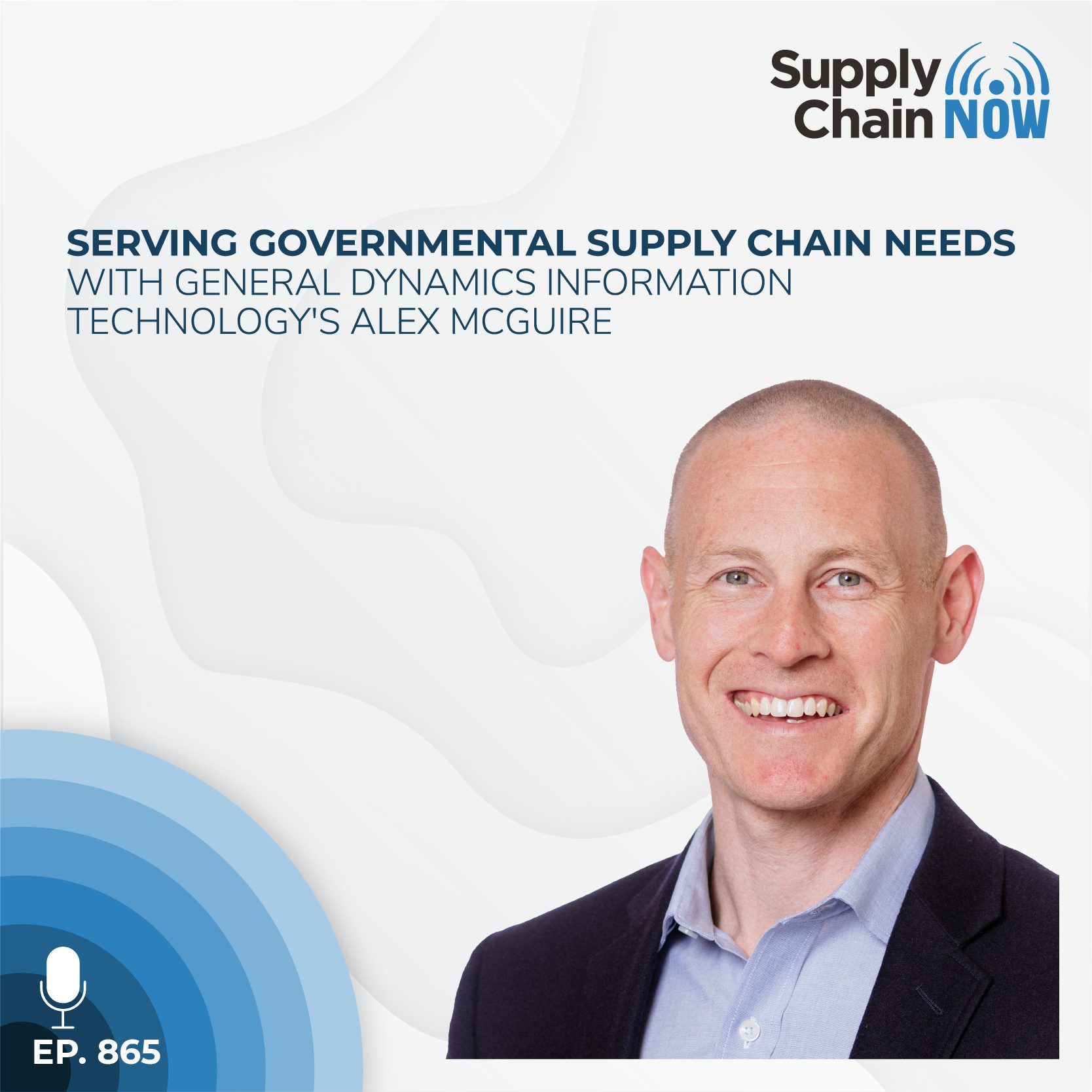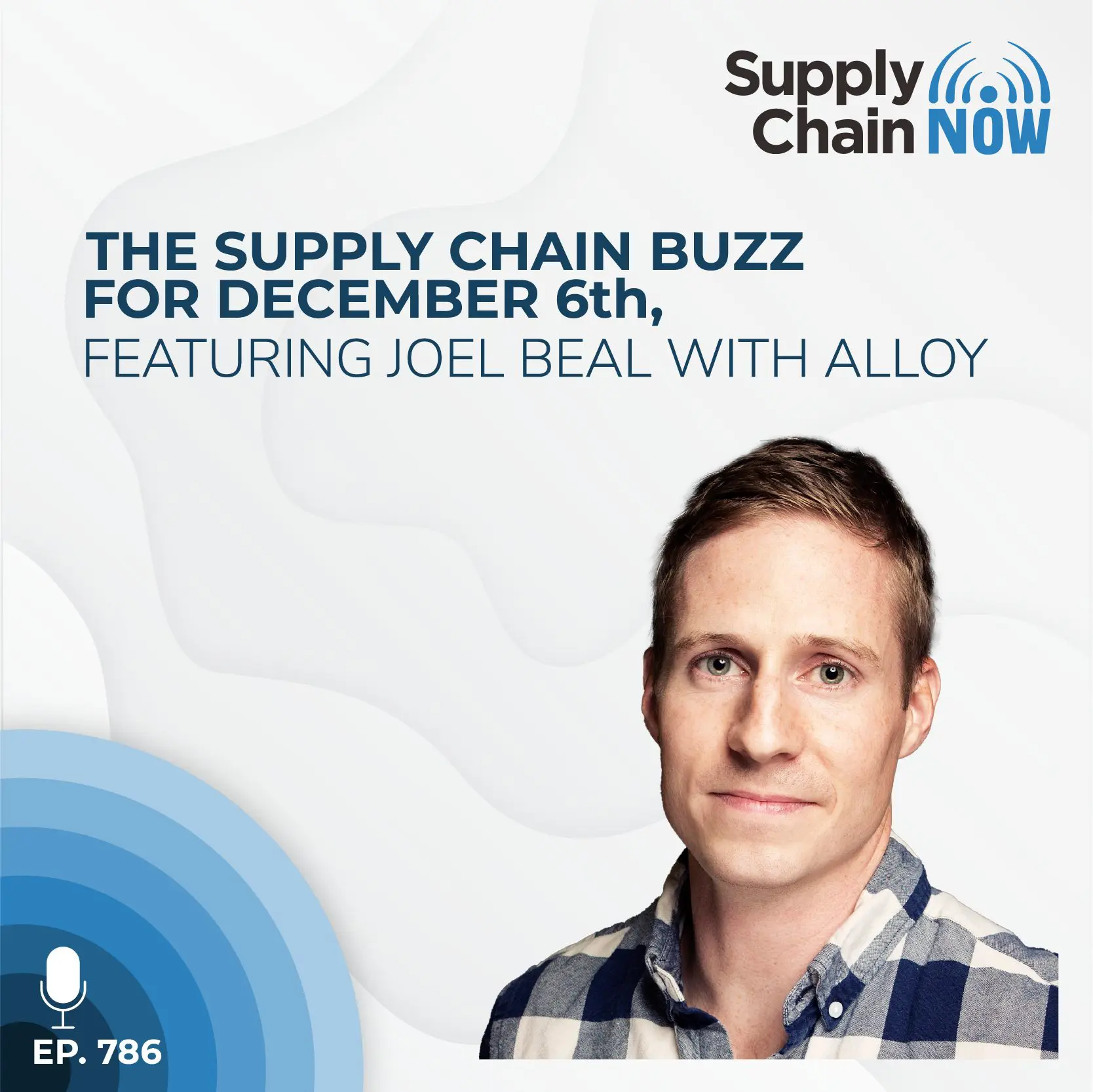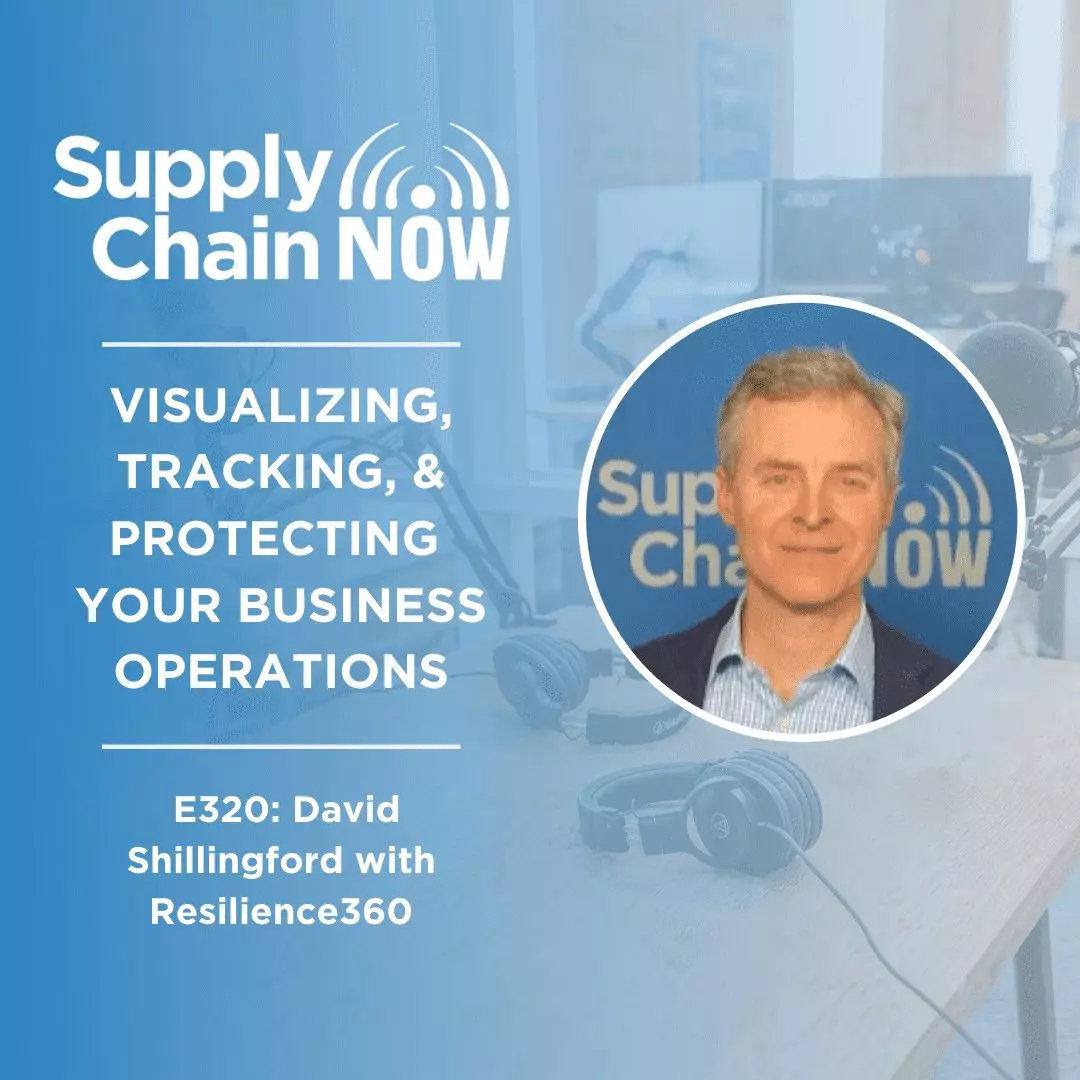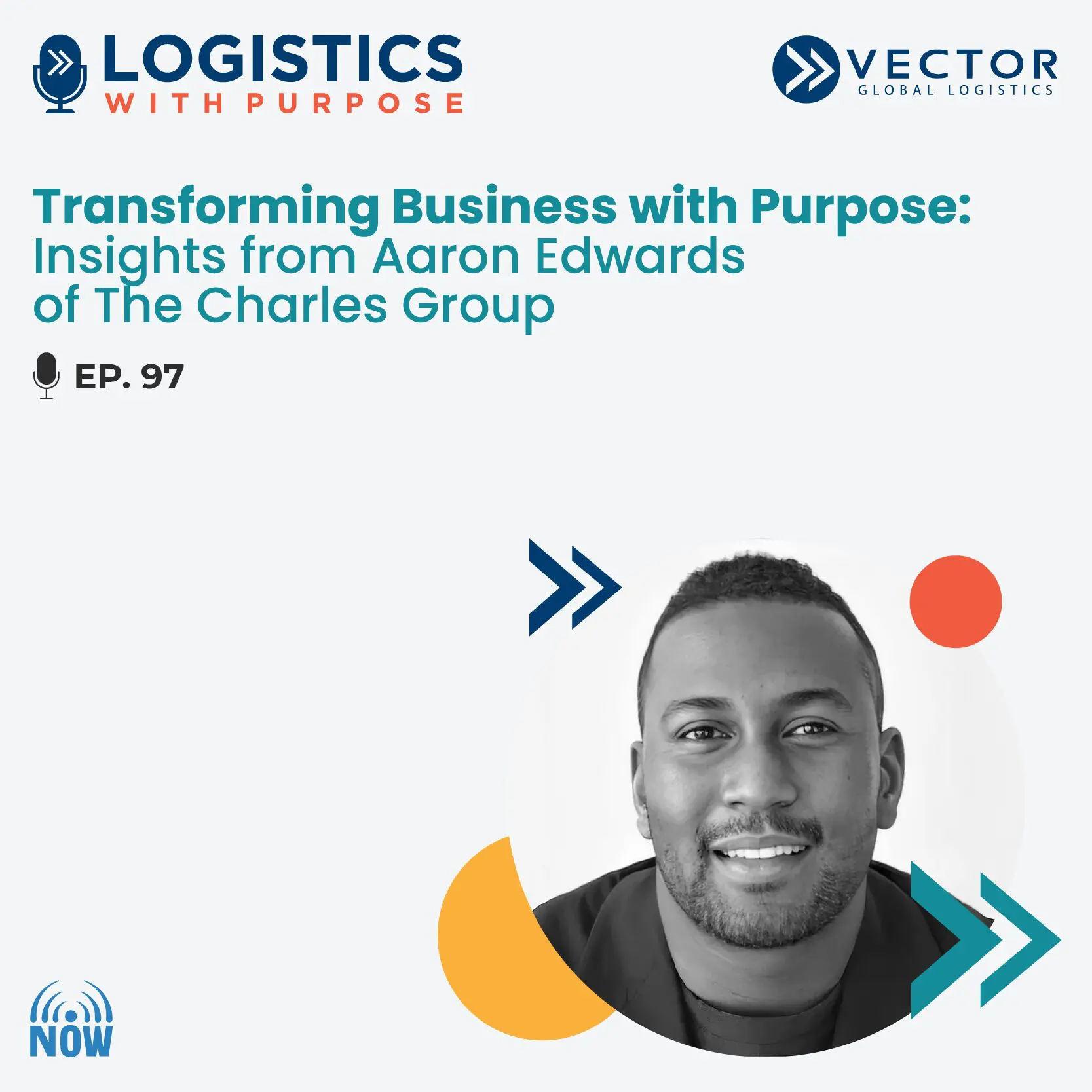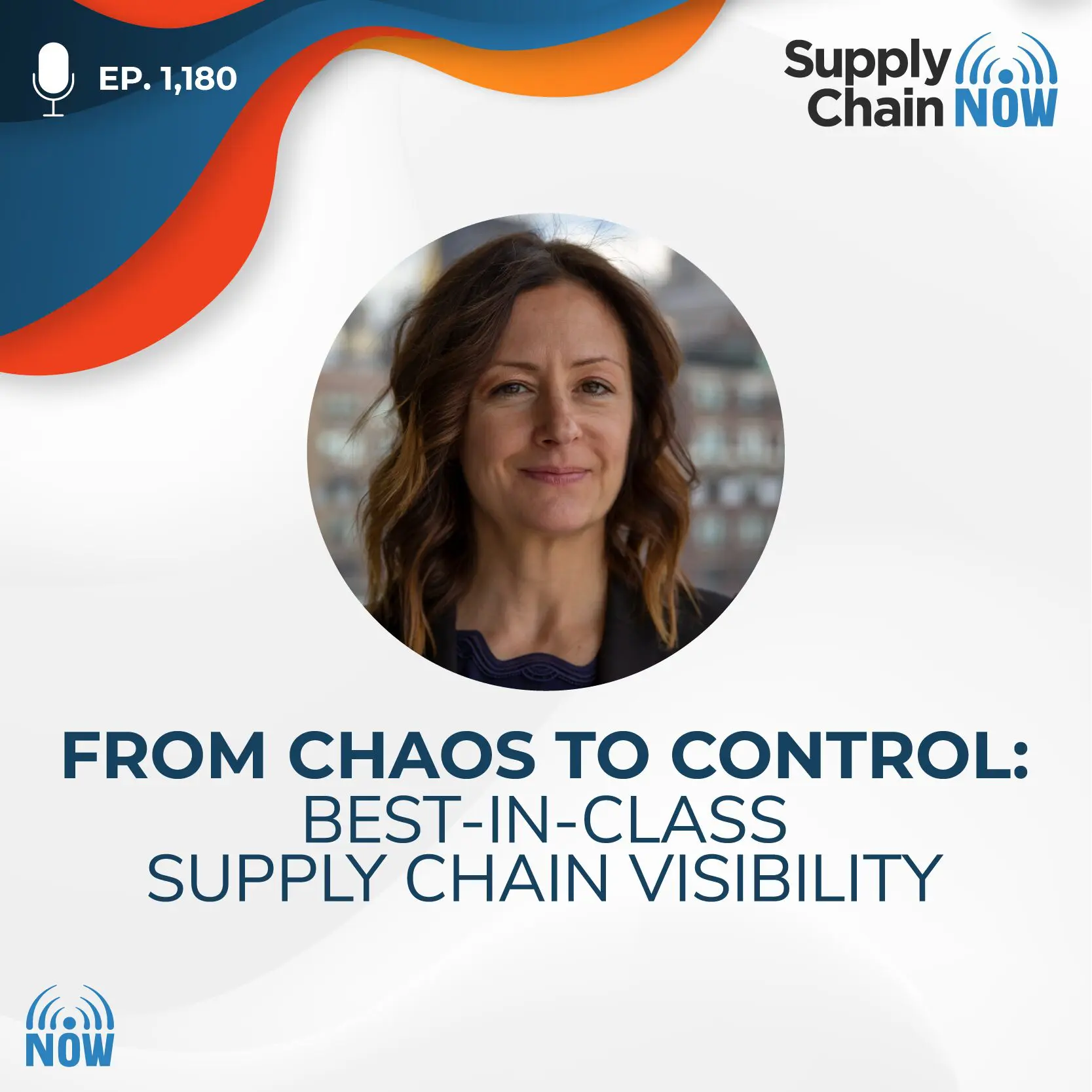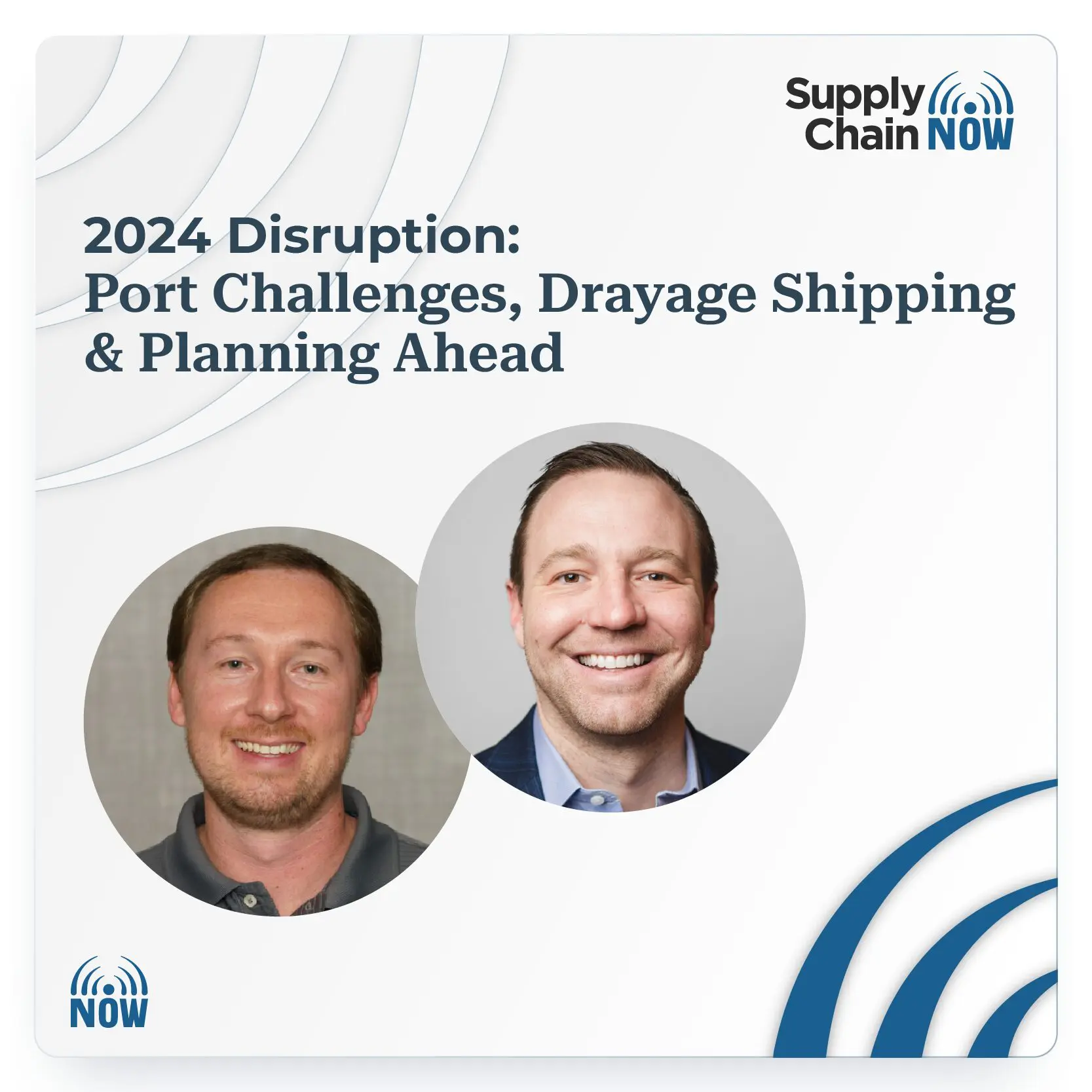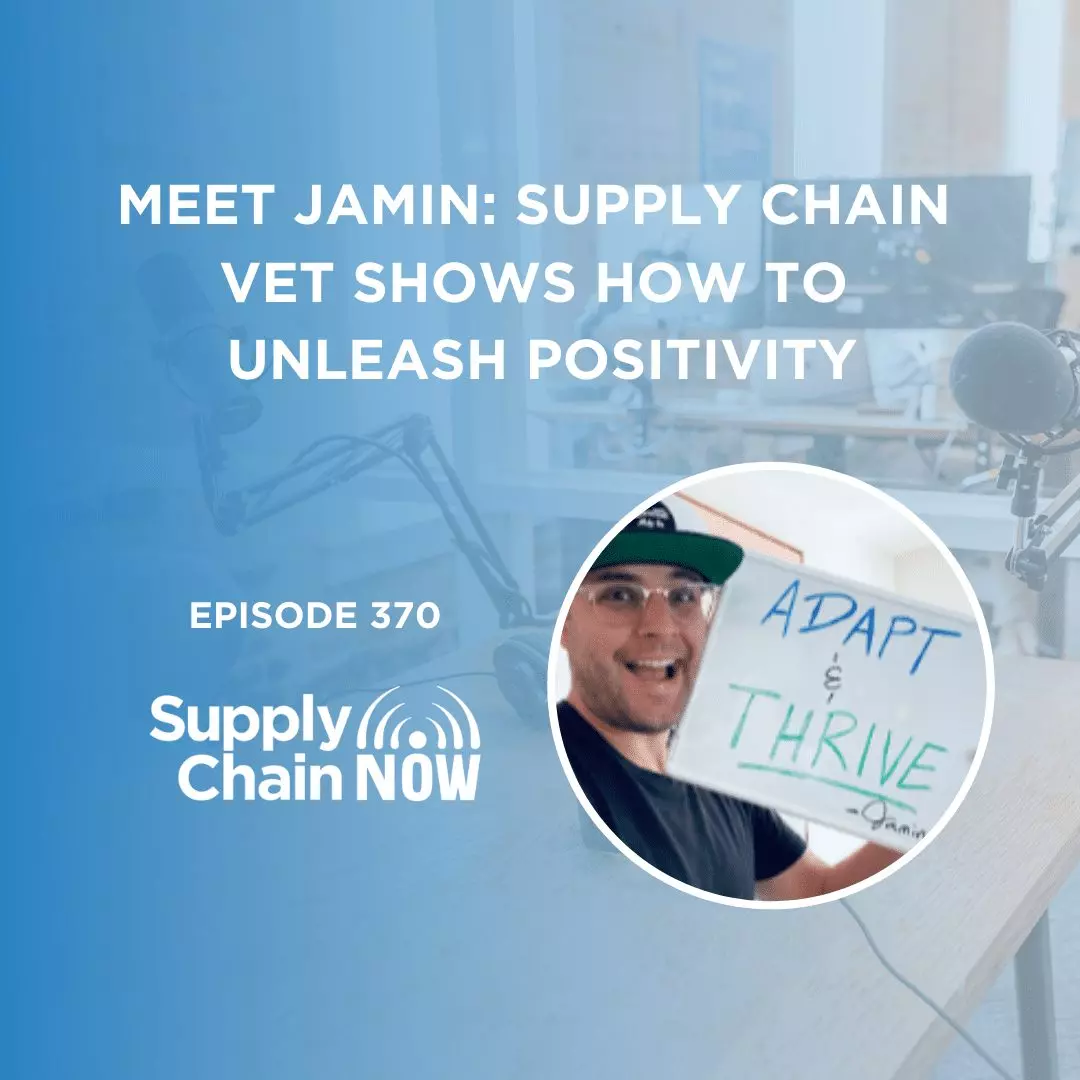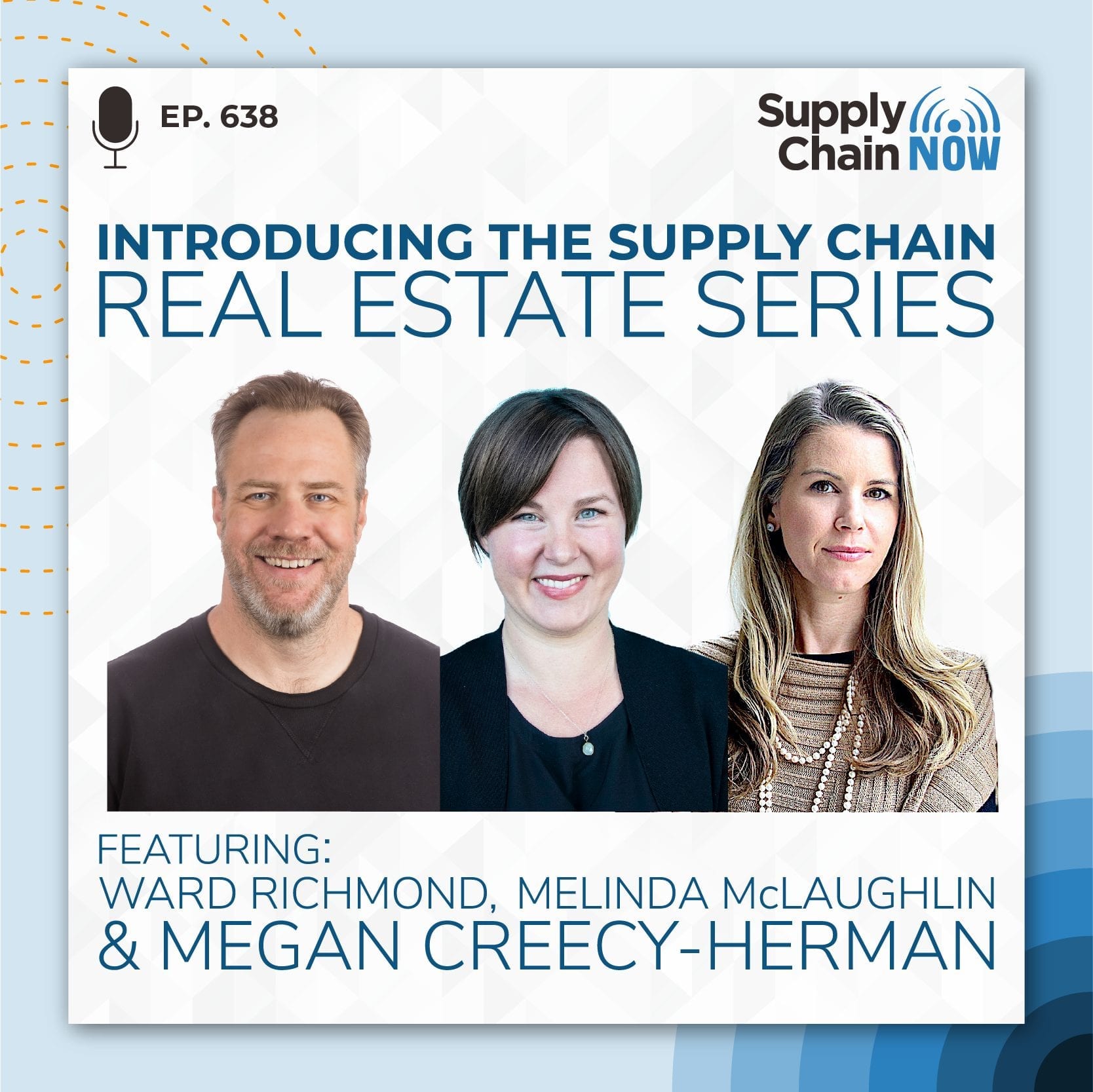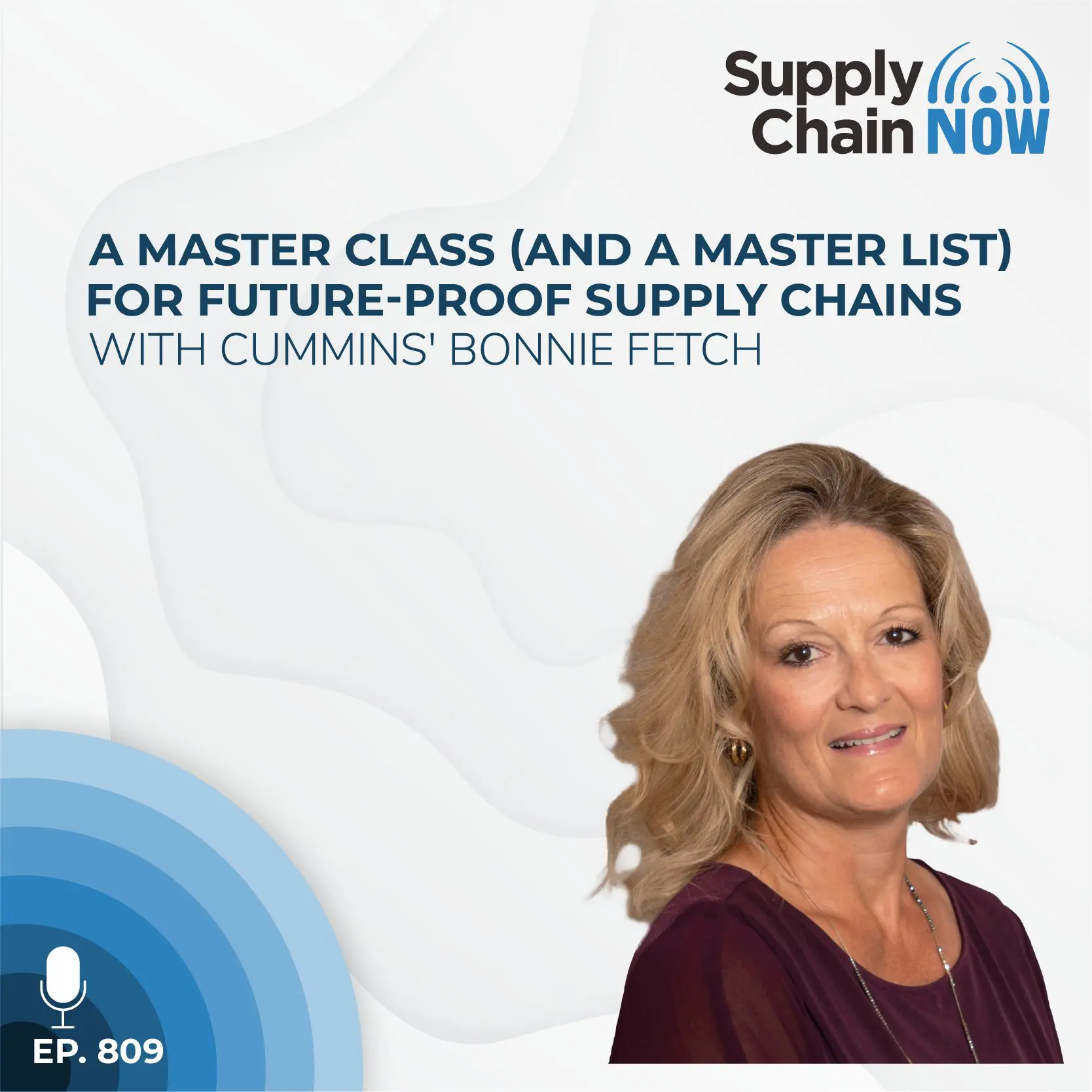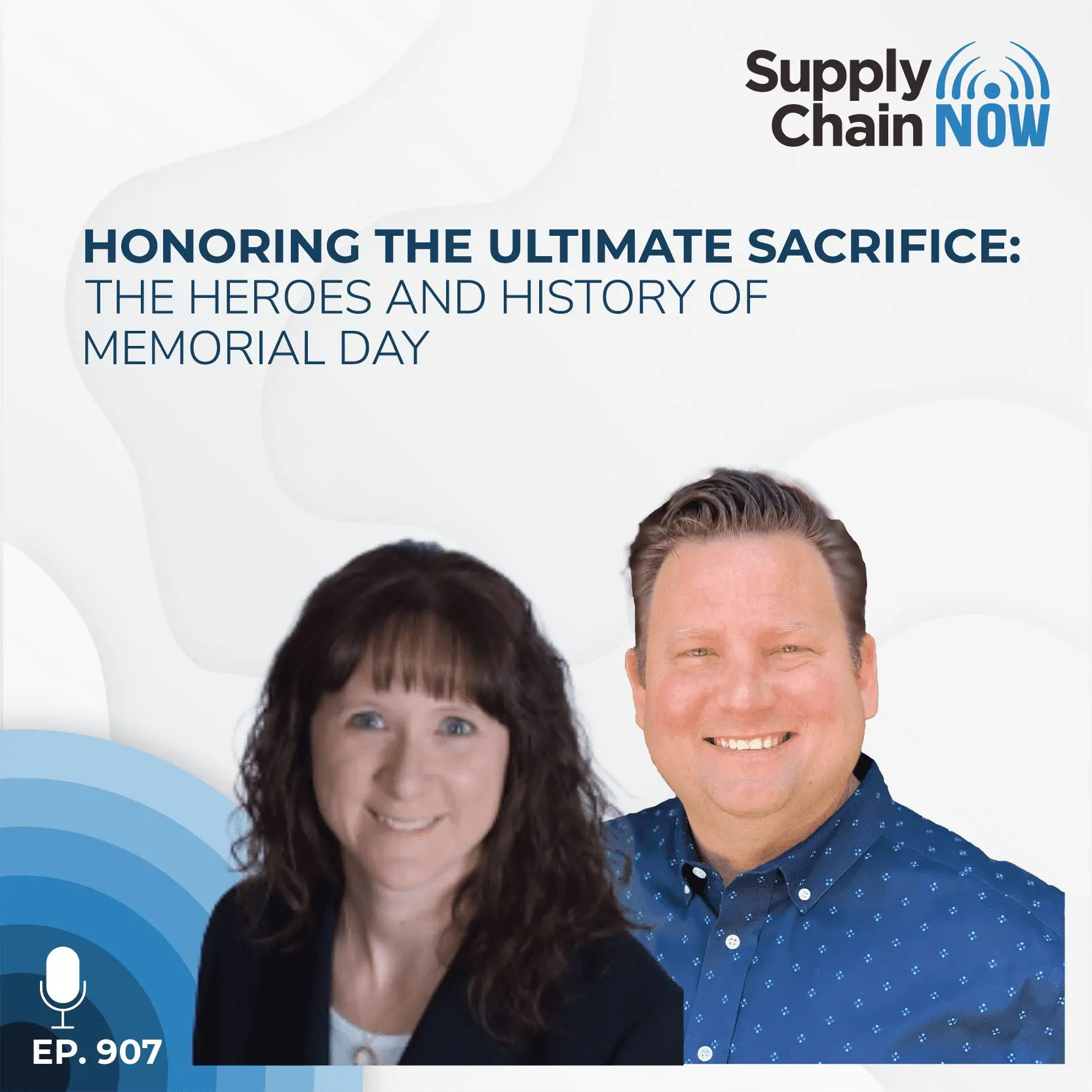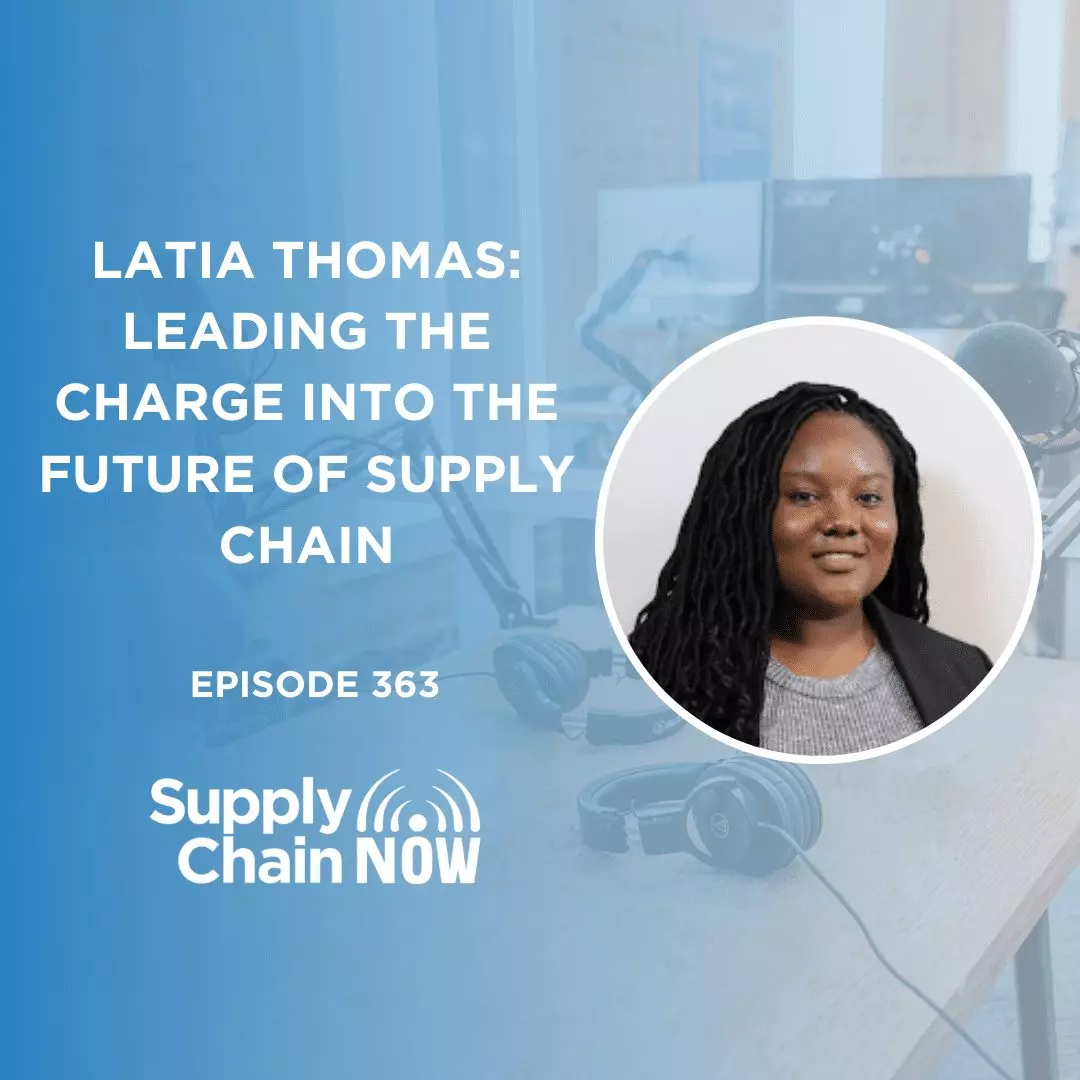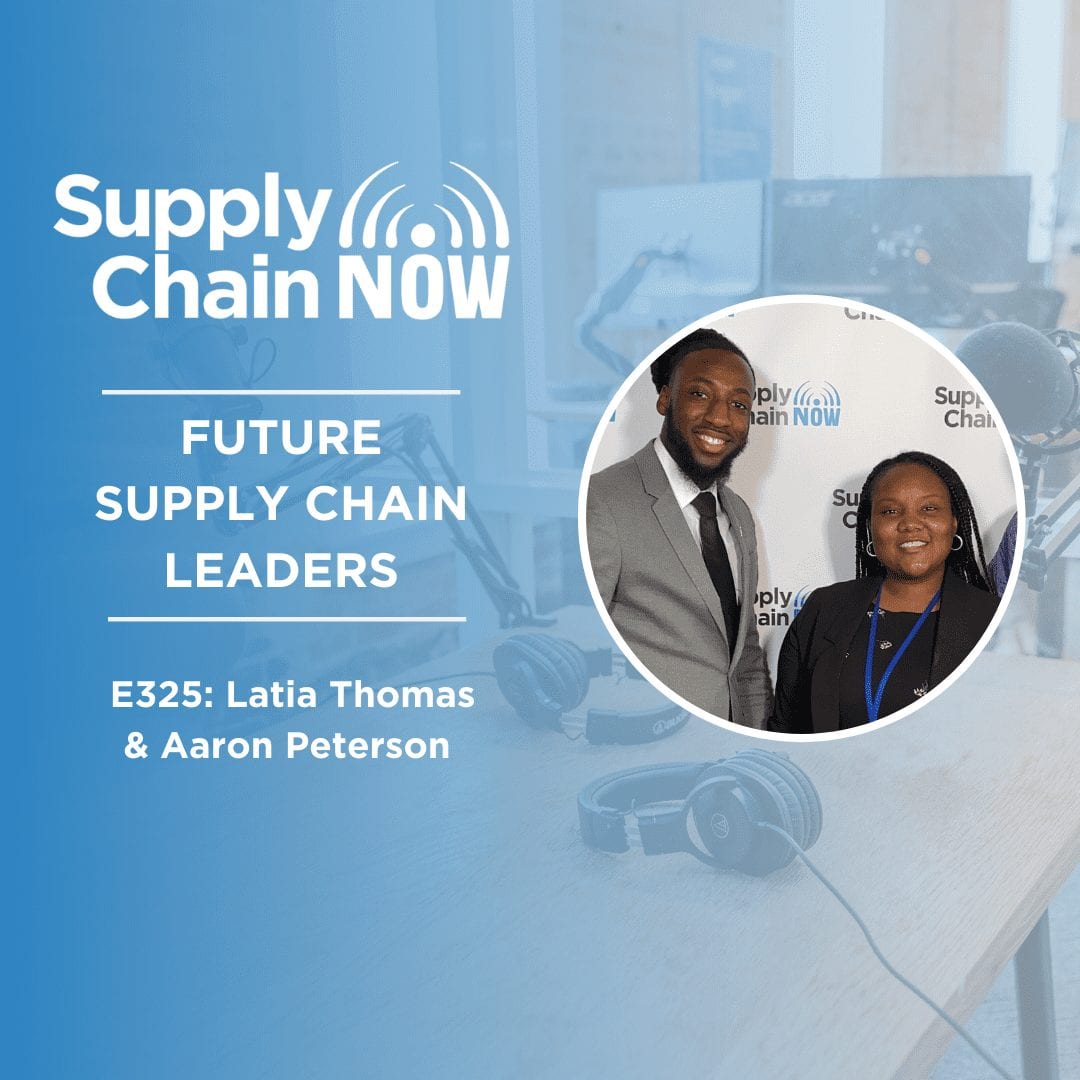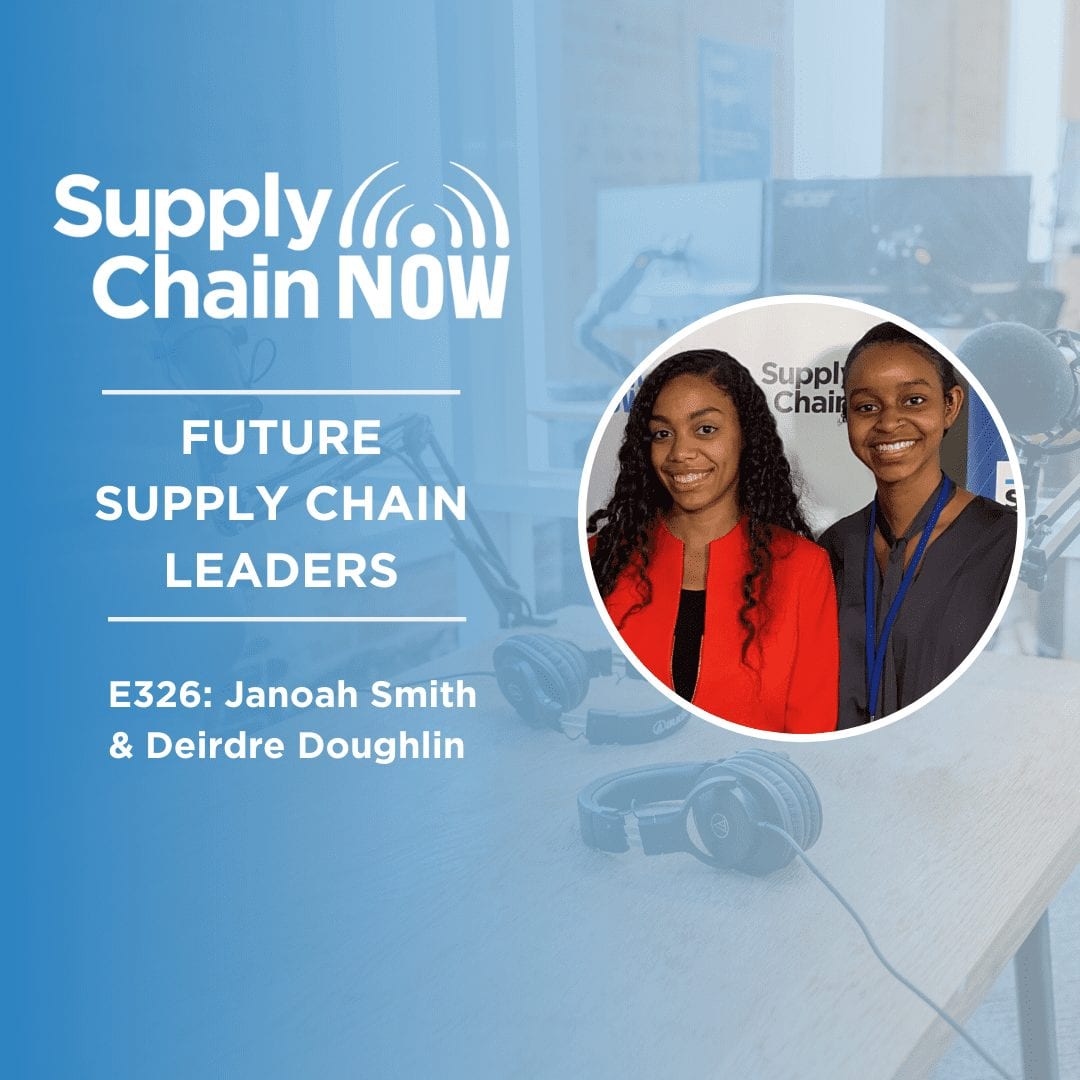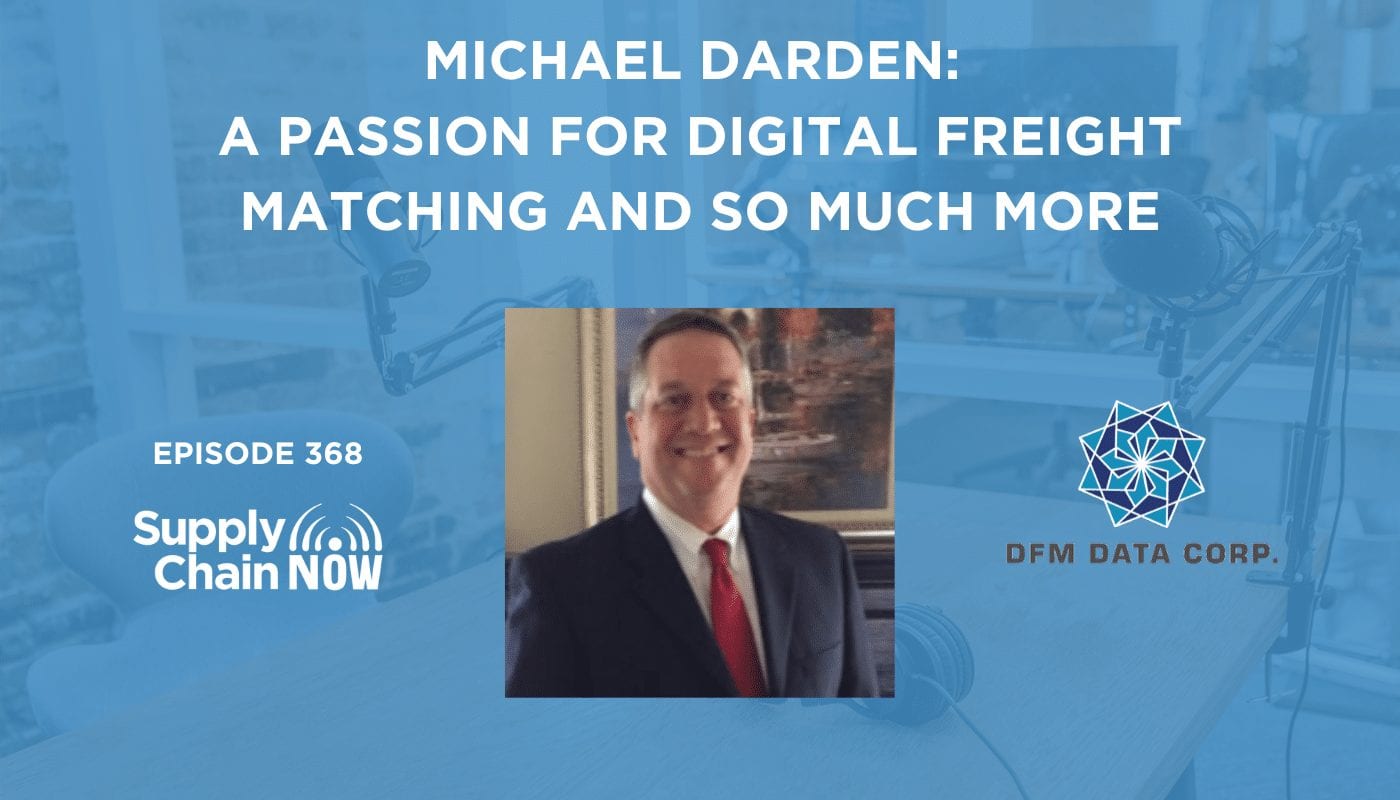
Episode Summary
“They told me, ‘Nobody’s ever done anything like that before, you can’t do that.’ But I said, ‘Listen, I can see it. I know what it looks like.’”
– Michael Darden, Founder and CEO DFM Data Corp
When companies talk about automation and data analytics today, they have the advantage of working from a position of nearly universal connectivity and device access. But the pioneers of many of the applications we use today started from nothing. They used whatever devices and communications channels they could get their hands on to achieve complex problems in truly visionary ways.
Michael Darden is the Founder and CEO of DFM Data Corp. His work to advance digital freight matching proves that you can create an algorithm for even the most complex problems as long as you have the data, assumptions and constraints.
In this conversation, Michael covers a wide range of topics with Supply Chain Now Co-hosts Greg White and Scott Luton:
· The advantages associated with solving related business problems from multiple perspectives (shipper and carrier)
· Using methodologies such as applied behavioral analytics to leverage data to not only notice meaningful changes but also reinforce desired behaviors and redirect the less-desirable ones
· The data challenge that digital freight matching providers have created in the process of trying to conveniently connect freight with capacity.
Episode Transcript
Intro – Amanda Luton (00:05):
It’s time for supply chain. Now broadcasting live from the supply chain capital of the country, Atlanta, Georgia, heard around the world. Supply chain now spotlights the best in all things. Supply chain, the people, the technologies, the best practices, and the critical issues of the day. And now here are your hosts.
Scott Luton (00:29):
Hey, good afternoon, Scott Luton and Greg white back with you here on supply chain. Now welcome back to the show. Greg. How are you doing? I am doing great, Scott. How are you? We’re doing fantastic. We’ve got a great show teed up here today we’re going to be interviewing a thought leader in the hot, very hot, white hot digital freight matching space and beyond, right? Uh, so stay tuned. We look to increase your supply chain leadership, RQ, supply chain, tech IQ, really, right? Yeah. All of that. And blockchain. That’s right. Buzz word in this show, which I’m really excited about. We can not have a supply chain conversation without mentioning the world block the word blockchain for sure. So own that. Yeah. With no further ado, let’s welcome in our feature guests, Michael Darden, president and CEO of DFM data corporation whose own a mission, a mission, what mission you asked to accelerate adoption of BFM services, both shippers and carrier’s.
Scott Luton (01:24):
Michael, how you doing? I’m doing fantastic. Scott, how are you? We are, you know, it’s been a great week and this puts the cherry on top. I know this has been in the works for a while and really looking forward to hearing from a pioneer in a variety of spaces, but certainly supply chain tech. Okay. Hey, for starters, before we get we dive into who Michael Darden is, tell us about some of the great work you’re doing with Linda Getz. Uh, the founder and a CEO of the blockchain chamber of commerce. So exciting times at the blockchain chamber of commerce. Uh, blockchain chamber of commerce has seen that, uh, they aligned their monthly, a division of supply chain and distribution for the month of may and happened to have had spotlight on supply chain for the past 60 days. The rest of the world, Michael.
Scott Luton (02:13):
Exactly. It was spotlight right there on what’s going on. So, uh, I was lucky enough to be able to get a contact from Linda about, uh, middle of April. And she said, you know, we got all these, uh, topics going on around supply chain and you’re really into this space. Can you help us pull together a panel? And I’m like, well, there’s a lot going on. I don’t know if I can get it down to one panel. So let’s, uh, let’s see if we can schedule a couple of sequential events. And we agreed to do three Thursdays for two hour events. And the first one was on the 14th, and we had a John grieves and uh, president of beta from Patrick Duffy. And it was just a bang up panel and had great response from others. And then last week we had a, or this week, the second week we brought in a bunch of highly academic folks, MIT folks, folks from Cornell and of all types you’ve got gotta have all times rounded out cause the education and academic side is, is really going to teach the youth of that to be able to, to grab hold of these new technologies.
Scott Luton (03:19):
Outstanding. You know, the world, it gets smaller and smaller. Linda was on the show, uh, probably about a year and a half ago. Uh, but not from what I understand and talking with you and I heard a lot about uh, uh, these panel sessions you’ve been hosting and I’ve heard a lot, a lot of chatter about the good things that the blockchain chamber of commerce has been up to since that time. So, you know, blockchain is here to stay. It’s not a flavor of the month and I’m really looking forward to seeing that the really big impact that has on not just global supply chain but global business. Well it’s great to see, you know, success cases like food trust and trade lens and you know, there’s articles that are showing new adoption on a weekly basis of new partners that are participating in a cooperative but competitive environment where the recognition of the collection of the data and the use of the data helps to drive everybody’s systems to be more effective.
Scott Luton (04:12):
Good old coopertition. Dale Christie coined that term and pushed it across the entire internet. I think that’s right. I in fact had to pay him a dollar 17 to use that today. So, alright. Yeah, let’s go. Let’s, let’s, let’s, let’s dive in here and again, kind of move past the blockchain. Uh, exciting. Okay. Connection here. Let’s talk about who Michael Darden is first before we get to DFM, you know, tell us about, you know, where are you from and give us, give us a goods on your upbringing a little bit. So I appreciate that. Um, I’m originally from long Island, New York. I was, uh, born in a Syosset and lived in a couple of different towns on the long Island up in New York. I’ve lost most of that accent. I moved here when I was 15 and started, uh, working for, uh, uh, an auto parts store and, and got a real experience of being able to touch inventory and delivery and had a work ethic that was instilled in me really early on.
Scott Luton (05:13):
And, um, when I got out of school, uh, I got a job with Coca-Cola and started to work with, uh, the national parts distribution facility and see the entire supply chain from, from the raw materials of fountain equipment being dispersed through the entire McDonald’s chain and burger King chain and doing conversions. And, um, it was very entertaining to work in a warehouse and to be able to manage those folks. But I, I had earned a really good reputation with Coca Cola and they, they put me in charge of the operations for the 96 Olympics. And really what an honor it was. It was, it was amazing. Uh, I thankfully had an in my wife, uh, worked, also worked the beverage industry and sold stickers and graphics to the Coca Cola company and heard as soon as this all started that they had an opening and I was Johnny on the spot to be able to get in there with it.
Scott Luton (06:06):
So it was, it was a really difficult assignment, but I learned so much to be able to manage, uh, you know, the purchase of brand new transportation assets and, uh, new equipment. And inspections and serial numbers and really having to build processes from the ground up. And we couldn’t just call a TMS provider and a WMS provider. Cause in 95, there wasn’t any WMS suppliers or DMS suppliers. It was, you know, ledger and paper and pencil. And, uh, if you had an ASMR 400, you were really ahead of the game. So, you know, a lot of folks don’t, may not realize, I don’t know, uh, just how transformational the 96 Olympics were here and not just the city of Atlanta. And then Metro Atlanta area had a huge impact on the, uh, the U S Southeast. So instead of even bigger than that, Scott, I mean, we had some major events.
Scott Luton (07:01):
The bombing that took place was, was months worth of preparation where people had, had, had to go through a bunch of training for security and physical security and digital security because digital was just starting to get here. And, uh, I don’t know if you remember, but they closed down access to most of the city right inside the perimeter. You couldn’t come in unless you had a hang tag on your car. And, um, the security was really an issue. And then to be able to have the bomb go off and rebound the Olympics was, was really quite an experience. Uh, it was, it was really a unifying event like we’ve seen with other catastrophe type events in the past. A special type of resilience, which of course these days has a whole different type of meaning here. Um, alright, so Greg, Mmm. So much to, uh, dive into here and unpack, but I don’t know, you’re curious a little more about his professional journey.
Scott Luton (07:54):
Well, I’m, you know, I’m, I’m interested in and what, um, what influenced you, right? I mean, we’ve, we’ve heard about some of the jobs that you’ve had, but tell us a little bit about a person or an event, um, you know, a life happening or you know, some foundational event that might have Mmm. You know, that might’ve driven you where you’re at today. Hmm. So, I mean, early life example, my dad passed when I was 10 and his, his best friend was my godfather and his brother was the one who owned those auto parts store. So at 11 I was, I was offered a job to be able to have a place after school to be able to ride my bike, do every day and receive an inventory. And uh, George Quinn was, was the senior and it was his company and his two boys worked there and they were my bosses and they were hard on me.
Scott Luton (08:48):
I mean they, they, they, I was Dellwood, my brother was Dexter and I mean we were called names to be able to go sweep and put the stuff away faster. I mean, it was, it was abusive and in New York that was love. You know, that’s just that, that’s what that culture is like. Um, you know, that that was certainly one, one big example, but, but probably the one that was most impactful for where I am today is, is at the same Olympics. I got exposure to a technology that, aye, I think it was like a crystal ball to look into the future. And uh, Nextel had just launched into in 1995 these push to talk devices and they were like walkie talkies but they didn’t have 150 yard range on it. Antennas that they established all across the city and worked with, you know, TDMA technology to be able to enable this immediate push to talk.
Scott Luton (09:43):
And I’m working in a warehouse and I got, you know, 22 material handlers and 98 service technicians and 300 product handlers and 22 trucks and straight trucks and pickup trucks and trailers. And all of a sudden I can talk to every one of these people and I can ask them, are you here? When are you going to be there? I can call the receiving person and tell them. And it gave me this visibility of the fact that this whole industry was going to change from this piece of paper, this bill of lading that the driver is taking from origin to the destination and it will shed a light on it. It will eliminate this black hole of information gap from when they leave the dock to where they go. And the tech wasn’t ready yet, but what I saw after the Olympics and had to build, you know, Excel spreadsheets and pivot tables and access, you know, entry forms, um, w was that the warehouses hadn’t quite got to real time information yet.
Scott Luton (10:42):
They were just launching warehouse management systems. So I spent about five years implementing warehouse management systems and learning all of the real time information triggers of data moves aligning to physical moves. Right. And when you get the agency down to the person that has the device in their hand and you can see who scanned and who picked from which location, you start getting metrics that allow you to be able to conduct your business based off of data and not just off of, yeah, what the appearances of a supervisor. Right. For several years I built those sort of systems and work with implementation of those systems. But in 2002, 2003, I was invited to take a consulting job with a company down in Florida. And this all kind of came together where they were looking to be able to work with some recycled material and bring it to the, the ports in Florida to be able to export down to South America.
Scott Luton (11:38):
And the transportation cost was their whole issue. They needed to be able to understand and know, truly know what the cost of goods sold were. And when you’re dealing with recycled plastics, cost of goods is the transportation. It’s so backhauls were really important. Tracking trucks were really important and they were like, we’re going to use the internet to be able to fix this at the time. Right, exactly. I mean it is interesting and for perspective for some of our younger audience, when Nextel was doing their thing, text messages didn’t exist. There was no way to communicate instantly on a device either by voice or even, Mmm. You know, even in writing. So yeah. Well we actually have paid effectively a really long range. Two way radio, right. Limited range, two way radio, which was the precursor to even cell phones. Right? Yeah. The, I mean, they didn’t even have the term smartphone at the time.
Scott Luton (12:39):
There were, there was no smartphones, tablets, there weren’t iPads. There were, this is, this is, you know, nine years before the first iPhone came out. This is early, early, early ages of, of these mobile technologies. And in 2003, uh, this company that I had worked with was called freight rate and they didn’t really have the full vision of what could take place with the internet. They just want it to book loads and make money on transactions. And, um, they had some really talented web developers, but nobody who really knew how to move data. And when I shared with them what I thought could happen with this industry of being able to, to, uh, build capacity management tools and build shipment shipment ingestion tool.
Scott Luton (13:30):
Yeah. I was like, the only way that’s going to happen as if there are these devices and Mmm. They were like, so that’s, that’s crazy man. Nobody’s ever done anything like that before you, you can’t do that. No, no. Listen, I can see it. I know what it looks like. I can whiteboard it for you. And they were like, look, we got this guy who’s up in Chicago, is really smart. He’s got this Northwestern guy who’s his DBA and we’ll fly them down and do some consulting work. And they were down for three days and we wrote this, this process up on the board of what you would need to know about transportation providers, what you would need to know about the origin and destination of shipments in order to be able to make digital matches. [inaudible] we were like this, this can be done. It’s, this is, this is just a profile and a terminal location and a range of services.
Scott Luton (14:21):
And whether they drive by themselves or whether they want to go to this state or don’t want to go and if they have hours of service, it’s a complicated problem, but it’s one you can develop an algorithm for. No, we did and built this system in 2003 to uh, connect a GPS device that was running by itself through a connection to the cigarette lighter that had an RS two 32 port on it and connected it to a Palm M one Oh five. And in 2004, we built an electronic bill of lading that tracked the shipment from pickup to destination with signature capture. Did you ever get a call from MacGyver about, uh, some sitcom fix it? I mean, it’s really, that’s what it was. It was pieces from different places that we were like, if we can slam these together, this is a work as you described that Mmm.
Scott Luton (15:18):
You know, being on that front and innovation, we don’t have all the perfect ingredients that were meant to be ingredients. I mean, that’s what I kind of see as you painted that picture. You’re making things work and you’re driving real practical innovation, acting on that vision or you know, what, you know what can be done. Proven it. You’ve proven the concept out. Now you’ve got to find the physical equipment two to make it happen. I mean back in 2004 you got to change the market because nobody knows what these devices are. Nobody knows what the benefit of the devices are. There’s no penetration of where they are in the marketplace yet. So while it’s capable of being done and we can prove that it can be done, we now have to come up with a distribution strategy of how to be able to sell GPS devices and PDAs and get them in the hands of drivers that are about to take shipments.
Scott Luton (16:07):
And that’s a real problem because in those days, those pieces of equipment are not embedded in your cell phone. They were a device by themselves that was manufactured, that had a significant expense with a SIM chip inside of it to be able to do the first levels of cellular communication. So there were some that were there. Tell folks what a PDA is. So a PDA is a personal digital assistant and our personal digital assistant is the, the origination of the smartphone. It was a handheld calendar and other other capabilities that at the time was not integrated to your phone? No. Right. Oh. And there really weren’t even cell phones that had any sort of operating system except for connectivity to be able to make a satellite call. Right. Where you were connecting to one of the few roaming satellites to be able to connect to, and the calls were super expensive.
Scott Luton (17:04):
I remember in the mid nineties I can afford about 30 minutes of cell phone service a month. You had to call me after 7:00 PM or on weekends. If it was a, if it was middle of day, it was gonna be a 32nd call because that’s where the market was. And that’s where a lot of the equipment that you’re speaking to was. So I find this fascinating. So how do we, how do we go from there? Fill us into the true start of DFM data corporation. What’s that up to about 2007 we built the system. We launched it, we had customers, a and P was our first customer. They brought us into the whole grocery industry and to Poland Springs and to nor foods and all these different providers that were in the same chain value chain. And we, we had a and P that had their own assets.
Scott Luton (17:54):
So we realized that not only did we have a marketplace of free marketplace, but there was a potential of this closed marketplace where a shipper may have their own assets and want to maximize their use, but also want to be able to access capacity when they need to from the extra market. So we, we, we morphed our system from the first solution of just a marketplace to being a private network solution to, um, again, this was right after the twin towers events took place and there was a lot of tragedy around what could happen, what were our threats and right, if you recall, the thing that was most concerning was the shipping containers was 361 ports around the world, right? Any visibility of what’s being packed inside of it. Is it a dirty bomb? Right? Does it show up in the port of long beach?
Scott Luton (18:43):
And you know, now you don’t know and what do you do with it? And that was a huge bat taking us back to 2001 mindset when you didn’t know. I mean, I mean, I was an air force at the time. We all saw the images on the TVs. We weren’t none of us in the country. New the next shoe that was going to drop to your point, Michael, to have all these, these containers and ports just at a port with no visibility. I mean there was a lot of um, anxiety about what was the next chapter during that timeframe. So alright. And our, like our visibility was not as clear then the department of Homeland security didn’t exist. It didn’t till after well after nine 11. Right. That’s actually how I got involved with it was they, department of Homeland security got formed and they were looking for who could give them visibility to this and they were like, we don’t even know what this is.
Scott Luton (19:35):
And they saw that I had a system that was taking ingestion of electronic data and was processing it digitally and they said, can you show us what that looks like? And I pulled out this, you know, rolled out piece of a flow chart that showed every one of the steps. And they were like, so we need you to do that for us. Container movements. And I’m like, so that’s a bigger piece of paper that’s going to take more time but I’ll bring it back to you. And two weeks later I brought it up to them and it became a program called master, which was really cool. I got the partner with Unisys and L three communications to work with with Homeland security. So it was, it was really another one of those, you know, 10 year later sort of wow, look what we got here.
Scott Luton (20:12):
Um, but you know, in 2007 we had this, this disrupted freight market where the balance of what was normally excess capacity and availability to be able to have a profit margin had flipped on its ear where there were additional capacity in the marketplace. And now the operating expense for trucking companies was driven so low that there was no profit left in the loads to be able to move and load boards that are or, or digital freight matching environments that are connecting to shippers and carriers are, are, are directly impacted by being able to have that control of what the is and they get better data because they’re seeing it as it’s taking place. So the marketplace shifted and as it was shifting, I had, Hmm, I’ve been given the opportunity to sell the company to Emerson Fittipaldi and then race car driver. Yeah. You know, you got it.
Scott Luton (21:03):
So I got to go to San Paolo, Brazil for a week and work with his team to be able to deploy an international version of the license of this tool that we’d built. And okay. Another great, amazing, amazing experience to work with him. But as soon as that transaction took place, the company changed board members and all of a sudden I was at the fourth year of my employment contract. So, um, it ended in the adult supervision. That’s right. It’s, it’s time to be able to bring to the adults because the young guys, you brought it all together are now at the top of their pay scale and we don’t want to pay them that much anymore. So I left there and I actually got contacted by Craig fuller and he sent me an email and said, love what you did with power to ship, would love to see if you can come up and have a conversation about what we’re doing here in Chattanooga.
Scott Luton (21:50):
So I took a meeting, went up and met with him and I got to be able to build a internal tool that was a connected to us express. So now after building this from the perspective of a shipper side that had assets, I had the ability to build it from a carrier side that had excess loads. And I was like, this is, I mean, I’m seeing this from every angle that I can possibly see how to be able to build this thing. And after we built it and had some early success, us express came and bought the company. Mm. And aye, I didn’t have a job with that company anymore cause it was brought into U S express. But we went right into trans card and innovated yourself out of yet another twice size. That’s, that’s impressive. It’s no less challenging, but still it’s impressive.
Scott Luton (22:40):
Yeah. So at the time I finished up with Craig and this company, trans market’s up in Chattanooga. I drive back home and I’ve been commuting from South Florida up to Chattanooga to work with Craig. And, um, every three weeks I’d go back for a week and work from home and then I’d be up there for three weeks again. And this long trip back at the end of my, my experience with them, I’m talking to my wife and you know, listening very carefully about what’s really going on at the house. And, uh, there’s so much no problems on the home team there. There’s, um, the kids are out of control, they have autism, they’re breaking things, they’re not minding and, and they need some attention and they need some construction around format that’s going to be able to help facilitate their, their learning. And um, they’re 14 months apart and they, my wife was home with them while I was traveling 50 weeks out of the year to be able to build my businesses and, and traveling to Chattanooga.
Scott Luton (23:40):
And it was time for me to plug in. So I came home and looked at my family operation and it was chaos. They’re there from, from the school bus to, uh, you know, throw things out of the refrigerator and not clean it up. And it was like, I got to get ahead of this and know what’s coming. So I left this supply chain world behind me and started focusing on what was happening in my own house and put up some video cameras and started to evaluate process. Like if I were trying to solve the problem in a warehouse, what’s the causal effect? How do I resolve this? [inaudible] it didn’t take long for me to realize that there was a lot of people that could provide that love and care and attention to the situation. But if they didn’t have a way to collaborate and to communicate around what was best practices that we were not making a whole lot of progress.
Scott Luton (24:30):
Right. So I took my experience of building predictive systems and developed a technology that allows for numerous observers, the teacher, the bus driver, mom, dad, educators that are involved in the student’s life to be able to update a portfolio system that maintains that record of what strategies work most effectively for that learner that has differences. And it’s an amazing tool. They were doing something at George Mason university with it. And they had done some research there and I licensed the technology and for 10 years I, he didn’t mess with supply chain, aye worked on kids with special needs. And I worked with people that needed to be able to have a support system and a control system, like a warehouse management system, like an ERP systems so that they could have a, a roadmap to be able to see where they were trying to go. Fast forward to last year.
Scott Luton (25:24):
I quick, real quick. Yeah. So Mmm. What, give us a lesson learned. You know, as we’ve found through these pandemic times and, and all these conversations we’ve been having Greg, it’s amazing to see life lessons that are learned from the most yeah. The front of the most disconnected to supply chain environments and, and, and how folks apply that to looking forward to, to supply chain the business, to you name it. What during that plugged back in and double down with your family. What was, what was the, one of the more important lessons for business that you learned? So there’s this methodology that’s called applied behavioral analysis and it’s basically changed management under a different name and applied behavioral analysis is pretty much taking data on an observation of a set of circumstances that you set up to be able to happen or that you see happens repetitively.
Scott Luton (26:24):
But what you’re looking for is the Delta of change of where something that you did differently produced a better outcome that you can then share that with others so that they can use the same reinforcer to be able to produce a better outcome. And that level of data collection reminded me about the predictive nature of the work that I had done in the transportation business where I’m sending a driver who’s never been to Plattsburgh, penis, Pennsylvania, and he’s going into an address that he’s never been to before with a load that he’s never driven before. And I got to give him enough information for him to be successful and then disconnect from it. And that’s very similar to the type of learning that you do with kids with special needs, where you have to identify what is the milestone, what am I trying to get to and how much effort I have to put in to be able to get it there.
Scott Luton (27:14):
I don’t care. I’m going to put as much as I need you to be able to get there. I have to teach them it’s across the street and look both ways. It’s a life and death thing and I gotta be able to pay attention to it in order to be able to make that change. There is a method and it’s applied behavioral analysis. Yeah. The other thing that I learned in that time is persistence. My youngest son or my middle son, it was more effective than, than my youngest son. Um, no, it’s just not in his vocabulary. It’s just he’s going to get what he wants. He’ll ask you enough times and there’s, there’s a persistence factor that you can wear somebody down if you, if, if, if your need and your request is reasonable and you ask it frequently enough with removing all the barriers, there’s no reason to not be able to get what you need to be able to have.
Scott Luton (28:00):
And that’s a life lesson. Say that’s your youngest, uh, that he’s my middle son. Yeah, he was, he’s actually born on my 30th birthday, so I stayed 30 for the rest of my life. I gave him my birthday and I get to claim the in third. That’s perfect. Yeah. Yeah. So after working with my kids in the system for a while, I, I as a wanted to keep up with the transportation side. It’s, it’s really been a passion of mine my entire life as I described at the beginning. And you know, I have a lot of friends that are in the industry that knew the work that I had done in the earlier days. And when, when coyote logistics was sold to ups, I got like four emails saying, do you know what this coyote logistics company does? And I was like, well, I mean, yeah I guess.
Scott Luton (28:50):
And they’re like, well they’re doing the same thing as we were doing when we were at power to ship. And I was like, well you know, that’s great, but we did it many years ago and they’re doing it now. So you know, call me with the next one that you see and we’ll talk again in a couple of months. And sure enough, I kept getting more and more emails from my friends about there’s more systems that are doing this and it’s amazing that we were just a little too early and if we could adjust stuck around and been here, we really could have owned the marketplace cause we were here first. We had the first mover advantage. We had had the insight to be able to, to capture what, what this capability was and to make it so that it was something that was submitted to the U S PTO for a new newly identified concept.
Scott Luton (29:39):
A new idea. And my name was listed on that as an inventor. And you know, you can’t ever get that taken away from you. It’s on the patent forever. When your name is an inventor on it, you’re the inventor of the bat. And that’s something that’s really, really cool about that. Um, but you don’t know what that means when you’re the early inventor. You just, your company is, we told you to assign it, you assigned it and now it’s there. But, um, I saw, you know, this was a public company that I worked for, so they have quarterlies and annual reports that come out and I was the recording secretary and president of that company when I was there. So I know what was in those reports and how to read them. So I read them every quarter, every annual report. And when they stopped submitting them, they have a risk of being able to lose their public company identifiers and they didn’t want to do that.
Scott Luton (30:31):
So somebody else came in and looked to be able to buy the company as like a shell where they could use that public entity to put their own IP inside of. And I read the press release and they said, we bought this company, we’re doing a 3000 to one reverse split and we have some new intellectual property that we’re putting in the company and we’re going to be going after the cybersecurity industry. And I was like, they don’t know that the patent that we invented is in the bottom left drawer of the desk. They, they, they don’t have any clue they’re, they’re going after a new piece of IP out of a university that it’s patent pending and they got a patent in the bottom drawer of the desk that they, Oh, [inaudible] I’ve been watching for years thinking, why aren’t they doing anything with this?
Scott Luton (31:17):
Why aren’t they doing anything with this? And Mmm. I called a couple of friends here in town and talked to them and said, aye, I invented this thing years ago and I don’t have it at the moment, but I used to and it was my idea and I want to get it back and this company doesn’t seem to know that. And you know, how would we do that? What would we do? I mean, how do you, how do you extract that asset out of somebody’s drawer that you don’t? No, I’ve never met them before or I consultants came up with the strategy and we put together a plan and I submitted the paperwork over to this company and negotiated a deal and in February of last year I bought my patent back. So congratulations. It’s a huge win. It’s a win like, like so out of left field.
Scott Luton (32:09):
Like I had love supply chain, wasn’t paying attention and then just a little bit of paying attention and seeing it in action on it. And all of a sudden I’m back in supply chain, back baby. I’m back in supply chain with a really cool piece of paper that’s got a nice gold sticker on it, but it’s got an emblem on it that is backed by the United States constitution article one, section eight. And that’s, that’s pretty cool. Yeah. So you know, as soon as you get it now you’re driving home, you’re, you’re singing the free bird song and the Tom cruise thing and um, yeah, Tom petty, free fallen or whatever radio station, that’s all I can find. It’s all there so you can sing it, right. And then you come home and you show it to the wife and you show it to the kids and everybody’s like, wow, that’s great. So what do we do with it? Yeah. And
Greg White (33:03):
so Michael, tell us a little bit about that. So this, this to me is, is a key question that we use frequently to help people assess what a company really does. So if I’m walking down the hall now in my home, formerly in my office, but if I’m walking down the hall and I’ve got a pain on my mind or key words in my head, what are those things that make me say I need DFM data, right? W what? What is it that, and it’s weighing me down or something like that that I should, I should know. Then it’s time to call you guys.
Scott Luton (33:42):
So the digital freight matching providers have all tried to solve the same problem. It’s a dynamic industry that’s really fractured with a lot of different players and they don’t know to be able to do business with each other numerous times. So they end up with one-offs and each of those one offs needs to be onboarded. And the freight matching companies have figured good ways to be able to onboard and serve as a broker in those transactions so that they can connect for the one offs. But at the same time as they, this all realized there’s a way to solve this problem. They’ve created another one. And the other one that they’ve created is the fact that they’ve given shippers and carriers the option of choice and they can go to marketplace one, marketplace two and marketplace three and put the same exact demand in each one of those marketplaces with no accountability for having to clean up their own mess.
Scott Luton (34:37):
And when there are loads that are not real loads in a marketplace, then there creating a Phantom demand that is requiring someone to respond to a phone call or to an email that is just a waste of time and they’re not motivated to be able to cleanse it. And when I looked at the getting the patent back and reading through what’s inside of it, it has all of these amazing claims about building a freight matching system, a digital marketplace of carriers capacity and shippers loads. And with a GPS or without a GPS and in a marketplace that’s the same shared system in a closed environment, it’s Oh really well written. I, I’ve, I’ve, okay. Been very complimentary to my previous attorney from 2003 that wrote this thing because everybody that I show it to now is like, this is so complete for what the current market is, but there’s four claims that we put in there that like my secret weapon, which was if I was able to get this back there was the ability to be able to remove multiple posted loads and multiple posted capacities, so I’ve assigned that right for that availability to the company DFM data Corp to go and approach the industry with a way to help them operate without friction.
Scott Luton (36:01):
It’s really very simple to take like a stock market trade and identify that that buyer no longer needs to have a seller [inaudible] that only takes place when you have a clearing house. When you have a neutral intermediary that can facilitate the cleansing of the data without trying to compromise the customers and the customers are the shippers and the carriers and I don’t want to serve as the shippers and carriers. There are enough companies that are doing that right now. What I want to do is serve as the digital freight matching companies so that they can remove the friction and make it so that the experience of each shipper and each carrier working with them is pristine. When they need that, they can find a capacity. When they need a capacity, they can find a load.
Greg White (36:52):
Well, and that creates a tremendous amount of of inefficiency in the marketplace because we have this series of swings where we either over or under represent capacity because of the lack of cleansing of this information in the marketplace. And
Scott Luton (37:09):
the every day
Greg White (37:10):
may not really be the price.
Scott Luton (37:13):
Right? Well, the price changes because what usually has been reported in the past is what the settlement price is and the settlement price takes place after delivery. After all accessorial charges are connected and after the bill has been sent or received, depending on where they’re collecting the information from for reporting, but the, the real demand and the price for the demand up the spot market when it was purchased is what the consummation price was. And right now EDI doesn’t cover that cost transition. It’s not in there. There’s a two Oh four to two 14 it doesn’t have a update status for truly each one of the events that take place. [inaudible] during a shipper saying, I haven’t ordered a move that’s leaving from here and going here and I need a carrier that can do this, that has these qualifications. And then tracking it all the way through to invoice. Yep. Siloed systems that have that capability. But the ability for those siloed systems to be able to comply to a standard would enable every one of them should remove this Phantom capacity and Phantom loads from their marketplace.
Greg White (38:26):
So is that, so the problem that that solves for both sides. So you know, to go back to the question around the pain that’s in head or on my
Scott Luton (38:36):
heart or whatever, it’s FTEs it, what they have to do right now is put full time employees in there to be customer service and sales oriented to bring in new clients instead of being able to service them with a high level of, of expectation and being able to provide that service. And therefore there’s so many companies that haven’t even experimented with digital freight matching yet because they have contract rates and they have a waterfall tender process and they just don’t think it’s a big enough problem. But if they had the option to take advantage of the real marketplace when the marketplace is in their favor, why wouldn’t they do it? And they do it all the time breaking contracts. But as we all know, contract rates are not really contract. Right? I mean they’re, they’re the guidelines of what we’re trying to be able to do until somebody not so much rules and guidelines.
Scott Luton (39:27):
Yeah, they’re very flexible. So moving right along for the sake of time here, because we’d love to bring you back, this is gonna be a seven installment conversation, I think of Michael Darden. I think this is a complex problem, right? I mean, absolutely. Hey Brooke, both parties are struggling through this aspect of it, so absolutely. Before we go back and see what else it was on your mind, uh, from a more general industry sense, tell us real quick reader’s digest what lies ahead right around the corner for DFM. So we have built the minimum viable ecosystem and the minimum viable ecosystem is a terminology that’s used in blockchain where it’s not a minimum viable product because the product with one user, it’s useless. The product to users is useless. What makes sense is to have an ecosystem of participants that agree to a set of governance.
Scott Luton (40:21):
So we’ve constructed the framework for those participants that are in the digital freight matching space to work through a IBM platform blockchain that enables the custom governance of this industry so they can govern themselves. They don’t need to be able to have the government come in and tell them what to do if they are willing to be able to show the transparency that’s frankly required by law 30 days after the transaction is over, but having it in an immutable ledger that has the capability of shielding that information until the time that it’s needed and removing the phone calls and emails and fax. That to me and email that over and tracking it down from the different silos saves everybody hours and hours and hours and manpower of full time employees just can be allocated towards you revenue Jenny, generating production as opposed to solving problems that should have been solved with data.
Scott Luton (41:20):
It seems like this protect this particular employment environment which is becoming more and more an unemployment environment could be a significant catalyst for what you’re doing. We know that a lot of the people, and we know that there’s a lot of labor inefficiency as well as process and efficiency in the freight industry. It seems like a lot of those people may not be coming back and or becoming back in a different capacity and the opening for this kind of technology is necessary. [inaudible] in addition, consumers are more and more a part of the supply chain and they are requiring this kind of transparency.
Scott Luton (42:01):
That’s what they like to call it as the Amazon effect. Right. Because now, now people have learned that if I go online and I order this, that there’s going to be a blue truck that shows up in two days. It’s got my stuff and when they trust that then they get to make a choice. Do I go to the grocery store and go get this? I don’t really need it right now. I can stay right here cause I know it’s going to be here at that point in time. And I think that same transition is capable of taking place in the transportation supply chain industry. If there is [inaudible] yeah, a layer of connecting the dots and if everybody is a straight up player and is working to be able to satisfy their customer needs, then the service of moving goods from one place to another is what we collaboratively do.
Scott Luton (42:49):
And if we can scratch each other’s back this time and pay it off next time and have it so we’re keeping score of what’s taking place, we can serve our customers a whole lot better and make it so that their first choice is the digital freight matching marketplace to be able to see what’s real. And their second choice would be a waterfall tender that they got to do. Okay. DDI technologies. All right, so let’s, let’s segue there. We’re going to, we’re going to piggyback that right into the broader industry because there’s no shortage of things. I’m sure you’ve got your finger on the pulse. What’s one thing that really stands out that you’re tracking more than anything else right now? Great question. Uh, so there, there’s a couple of recent things that have come up. You know, the, the president’s put in some, some, uh, new directives to be able to remove some of the, the burdens and barriers around conducting business in the transportation industry.
Scott Luton (43:38):
Um, there was actually a very interesting document that the government put out in February. It’s called a BAA abroad agency announcement where, uh, they, they basically allocate an earmark some money to be able to work on projects that they don’t understand why we don’t have a commercial solution for. And the scope of the project that they put out at the beginning of the year was how do we incorporate this incredible blockchain technology with the interoperability of vehicles and service stations and fueling stations and parking spots so that we can identify vehicles that don’t need to exit at certain exits and can be put to the next exit because that’s where there’s parking available for them to stop for the night. But they don’t have the visibility into the whole market. So my team actually responded back to that BAA and shared some information that was related to how the only real source of digital transaction confirmation data is.
Scott Luton (44:39):
Okay. These marketplaces, dat has a huge number of customers that are using their platform and because of that they have a deep data set, but their data set can’t be any bigger than what their data set is. The only way this data set gets to be truly large enough and valuable enough is if we gain the, the the connection points of each one of the consummated transaction. So that’s the big idea is, is to build the, the consortium of digital freight matching companies to agree to a governance that enables this visibility to them so they can build their platforms more effectively to service customers where they’re expecting to be serviced. Okay. I’m not sure where to dive into what he just shared there. Michael, Greg w w what thoughts that generate on your end?
Greg White (45:29):
Well, I think, you know, w that addresses a lot of issues, not the least of which is we have all of these
Scott Luton (45:37):
truckers
Greg White (45:38):
who have no clue have had or, and I think we’ve resolved that somewhat but had no place to park and had no knowledge of whether they had a place to park until they got there and didn’t find it. And they might run past their hours of service requirement in order to try and find a place to stop. So that’s just one. So the connectivity between, sorry, the connectivity between organizations to be able to actually understand the marketplace is critical because pricing decisions and shipping decisions and timing decisions are being made every single day with what is effectively flawed and out of date data and be able to reconcile that is going to be important
Scott Luton (46:18):
and to recognize it in a real time environment. Right. So that you’re actually looking at what’s here and not a report from six, six weeks ago for the last six weeks. And trying to be able to say how much of the last 40 days worth of data am I really missing because I don’t have copies. These are those invoices yet. Yeah and that’s not a good way to forecast as well. Now we’re going back to the, you know, the, the truck driver experience, which we really need to meet. We need to be more sensitive to here in recent years and certainly ahead. I mean there’s no wonder why there is a shortage in that truck driver population given some of the ways that they’re treated out out and industry along. Let me tap onto that for one second cause there’s a really interesting point that I’ve had David, my marketing guy worked with a couple of folks on, you know, if you’re a truck driver and you work with these different marketplaces to be able to, to collect your capacity to and connect, to imagine your job of switching from this app, for this load to go to this next app for the next load that you’ve already agreed to be able to get to posting your next availability in five marketplaces that you don’t know.
Scott Luton (47:26):
Which one of those apps you’re going to have to pull up next for the next one. Yeah. I mean that’s, that’s not a safe way of operating a vehicle. It’s not a safe way of running your business. Too many mobile apps that are out there because drivers are trying to be able to get book. Right. All you want to do, I want to get a load where I’m getting paid, where my wheels are turning right. And shippers. All they want to do is get the freight to their customer with as little friction as possible and somebody who’s going to pick it up off my dock when they’re supposed to and get it to where it’s supposed to go at the time. Everybody wants to know when an exception takes place. Right. The industry every year that I’ve been involved in it, that’s, that’s the little black secret.
Scott Luton (48:06):
You know, that truck’s right around the corner from there. He’ll be there in 15 minutes. Yeah. Well, you know, going back to trying to find a room to rest, right. A a rest stop, you know, just to here in the Metro Atlanta area, which probably probably arguably, maybe, um, you know, has a leg up on many Metro markets given all of the exits and, and, and infrastructure infrastructure and all the, but the, uh, the Atlanta regional commission of course has a freight task force and this is a little bit dated, but I bet it hasn’t gotten much better. Um, other than work, they have a progress. They’ve made, uh, roughly an hour and a half is what their data told them that each trucker was spending an hour and a half on their phone or on their phone or driving or whatever, trying to find just a spot to pull over.
Scott Luton (48:51):
Am I going to pull over? Right. And that’s not acceptable. We’ve got, we got to figure that out. We gotta figure out your point earlier about, you know, all these different platforms and, and that’s not a safe way to operate because at the core of it, I liked how you put it. They’re, they’re just trying to, to make money while the wheels are rolling and just, yeah. Make it seamless. So. Alright, drivers want to drive and shippers want to ship. That’s right. Brokers want to get in the middle of the transaction to be able to take a transaction to make a couple of beans on the way. That’s right. Yeah. Yep. Okay. So they’re a necessary evil. I mean, I’m not trying to be able to say it’s a marketplace and there are brokers in every marketplace. That’s part of the glue. That’s right. Okay.
Scott Luton (49:33):
Shifting gears, no pun intended. As we, as we start to wind down the interview. Sorry Greg. Um, alright. So good one. You led a panel, uh, roughly two weeks ago that included our friend Daniel Stanton, mr supply chain and some other all-stars. I don’t have it in front of me. Um, tell us what, I mean, is there a key takeaway or two, what was your favorite part of that discussion? So, uh, Dan, Satan did a really great presentation with, uh, Mark Manning with, uh, [inaudible] technologies. And as we all know, the labeling side of information and the bar coding or the overarching numbering system that goes with things is, is so important for consistency, reliability of scan and trustworthiness of, of, of the information. And one of the founders, the real legacy folks in this industry, a guy named John Greaves who was on the committee with us as well.
Scott Luton (50:31):
He’s a, uh, he’s on 17 or 18 standards committees. He’s chairing eight of them at the moment. Most of them related to automatic identification systems. The man physically invented and has the patent for RFID for industrial use. Wow. But you’ve developed it prior to the time that it landed in the lifespan of his patents. So he’s, he’s made a life and a career out of being able to work the standard space. But Daniel came in with Mark with a labeling technology that is working in the the aircraft replacement parts industry where the authentication of those items, a regular sticky label or a barcode or a QR code is not going to have the lifespan to be able to, uh, sustain the time and the, a ruggedness of the airline environment. So they’re using a laser and a very interesting marketing, uh, capability that has a mobile app to be able to read the technology with.
Scott Luton (51:31):
And I think there’s so much to that. You know, the RFID technology is fantastic, but it requires a whole new reader and there’s a piece of, of how this world is going to be coming together of physical things, moving and data, things moving, that the people that are doing the moving are going to be the data collectors. And they all have, like we talked about at the beginning of this, they got this little computer thing in their hand that they can now collect this data with, right? If there’s an authentication method that enables that person to be able to be accountable for what they’re doing, then we can digitize these interactions in a touch free environment of no bills of lading, no, just digital. Bill’s a lady where I take a picture of the QR code on your phone and that brings up the bill of lading on my phone and sends a message back that authenticates my number to that bill of lading and I’m the person that works for this company.
Scott Luton (52:23):
And tying all of those attributes together is what’s required to make blockchain work is that it’s, there’s just no secrets anymore. It’s just that there’s, there’s elements and people that are making control points and those decisions have texts and numbers that are making it so that there’s a hash that’s collecting that information and stored. You can’t go change it so everybody can trust that it’s, it’s what everybody thought it was at the time that the transaction took place. Like Dennis Green, the head coach and sort of Vikings. It was, they were who we thought they were. They were who they thought we were loved and as green man, what a great coach. Uh, Vikings flew how and when he was leading him. Hey. Okay. So as we wind down Greg, we want to make sure that our audience can connect with, yeah. Michael and DFM corporate.
Scott Luton (53:09):
Yeah. Tell us a little bit how folks can connect with you. Sure. So we have built a website@dfmdata.com and on that website there is a getting started link that DFMs can basically come on and fill out their little profile that identifies how they like to be able to exchange information, what their systems are built in. It just helps with the interfacing and onboarding of those digital freight matching companies so that we can process their information more cleanly. But in addition to that, there’s a directory on the website that’s got 225 digital freight matching companies worldwide and differentiating them into six different categories of a carrier DMF, a DFM or a shipper DFM or a platform DFM and enabling new entries who are wanting to be able to experiment with a ooze. The right DFM for me to work with. They can go through each one of them in a centralized place like the yellow pages and be able to look through them and see which is the right ones for me to be able to engage with.
Scott Luton (54:07):
And ultimately my goal is to help every one of the digital freight matching companies gain more market share where we as a whole industry have better visibility to the transaction level detail. Love it. And you built one heck of a team, uh, from Michael Turner to David Wolf, all the rest of the team that you could find a lot of them on the website. Uh, your own, the move, Michael, it’s great for the free to stop by and checking with us here. That’s supply chain now. Well thanks very much for having me. I’ve really enjoyed the talk today and I’m sorry for the technical difficulties on the front end where my microphone didn’t want to be able to play with my webcam, but we got it down. That’s the struggles of the time that we’re in today, right? Is you gotta be able to MacGyver it together.
Scott Luton (54:50):
And if anyone can, Michael Darton Kent. So, Hey, big thanks to Michael Darden, present CEO of DFM data corporation. As you heard him say, you can learn more at D F [inaudible] dot com. Thanks so much, Michael. Greg, great show. Give me one quick hot take before we, uh, we head out. I think the biggest thing is that this is a fantastic tool that gets between all of the players, right? Obviously history goes without saying. Mmm. But I think that that um, this gets between all the players and eliminates inefficiencies. It eliminates danger and it, uh, allows companies to come together, right? So as he said, clearing house. It is a clearing house. Yeah. Cleanses and clears all of that data to make sure that everyone is on the same field. That’s right. The friction Buster. We’re going to send you a tee shirt for that, Michael. I love it. Hey, to our audience, hope you enjoyed this conversation as much as, uh, as Greg and I did learn more about all of our conversations with a broad variety of thought leaders across end to end global supply chain at supply chain. Now, radio.com on bath, the entire team, Scott, lewd, and Greg white. Okay. Wishing you the best in the days and weeks ahead, and we’ll see you next time here at Supply Chain Now. Thanks everybody.
Featured Guests
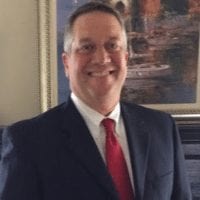
Michael Darden began work in NY at his Godfather’s Auto Parts Store when he was 11. He worked there until he was 15 when he moved from NY to Georgia. Michael worked through high school as a delivery driver. When he began working for Coca-Cola after college at Auburn University, he fell in love with logistics. Michael’s 10 year career with Coca-Cola culminated with the job as Operations Manager for the 1996 Coca-Cola Olympic Warehouse. After the Olympics, he served as Operations Manager for several companies implementing WMS system. In 2003, he was hired as a consultant to work with the internet and trucking by FreightRate, which became Power2Ship. He was the President and wrote the patent for a ‘Dynamic and predictive information system and method for shipping assets and transport.’ He was then hired by Innovative Processing Solutions, dba TransMarkets. Transmarkets was purchased by US Express and they he helped build TransCard, a debit card processor for paying drivers remotely. In 2008, Michael changed industries and focused on the special education community. He founded A Deeper View and licensed a technology from George Mason University to commercialize. In 2010, A Deeper View entered into a reseller and service relationship with Dartfish USA, a video analysis technology. In 2018, Michael formed Block Knowhow to start working with Blockchain for supply chain use-cases. In 2019, he purchased the patent that he invented many years before, and formed DFM Data Corp to monetize the patent and serve the fledgling DFM industry.
